Alumni
The Center for Molecular Cardiology grew out of the founding research laboratory on Vascular Physiology at the Center for Education and Research (Zentrum für Lehre und Forschung) at Basel University (1987–1993), the Research Division of the Department of Cardiology at the Inselspital Bern (1994–1996) and eventually the Cardiovascular Research Division of the Institute of Physiology of the University of Zurich–Irchel campus (1997–2014). Since the early 1990s, the Center for Molecular Cardiology has contributed to more than 1,000 scientific publications and garnered over 70,000 citations (as of 2017). Due to the outstanding efforts of scientists working at the Center over the past few decades, knowledge of the mechanisms underlying cardiovascular disorders has increased significantly, and the quality of healthcare in this field has improved. Some of our alumni are now leaders in their field, in Switzerland and globally. For a more comprehensive overview, see the Center for Molecular Cardiology at the University of Zurich, Switzerland
PD Dr. Lukas Altwegg, MD

Lukas Altwegg studied medicine in Basel and then completed a postdoctoral fellowship in the Cardiovascular Research Division of the Department of Physiology, University of Zurich, working on human connective growth factors in atherosclerosis. This was followed by further training in internal medicine at the Kantonsspital Baden under the guidance of Prof. Jürg Hans Beer and subsequently in cardiology under Prof. Thomas F. Lüscher at the University Hospital Zurich. After obtaining the FMH board in cardiology, he moved to Vancouver to work with Prof. John Webb, the pioneer of trans-arterial valve implantation. After his return to Zurich, he established the TAVI program together with Prof. Willibald Maier at the University Heart Center. In 2012, he obtained the venia legendi (Habilitation) at the Medical Faculty of the University of Zurich. In 2013, he was elected Chief of Cardiology at St. Clara Hospital in Basel, Switzerland.
Dr. Urs Arnet, PhD

Urs Arnet started his career at the University of Basel, where he studied pharmacy. He did his PhD in Prof. Lüscher’s cardiovascular research group at the Center for Education and Research of the University Hospitals Basel, Switzerland, on nitrate vasodilators. After his PhD, he moved to the Johns Hopkins University in Baltimore, USA, where he investigated endothelial nitric oxide synthase. In 1995, he returned to Switzerland, where he continued his research activities in the lab of Prof. Lüscher at the Inselspital (University Hospital) Bern. In 1997, he assumed a position at Merck, Sharp & Dohme-Chibret AG in Glattbrugg, Switzerland.
Dr. Tasnem Arsiwala, PhD
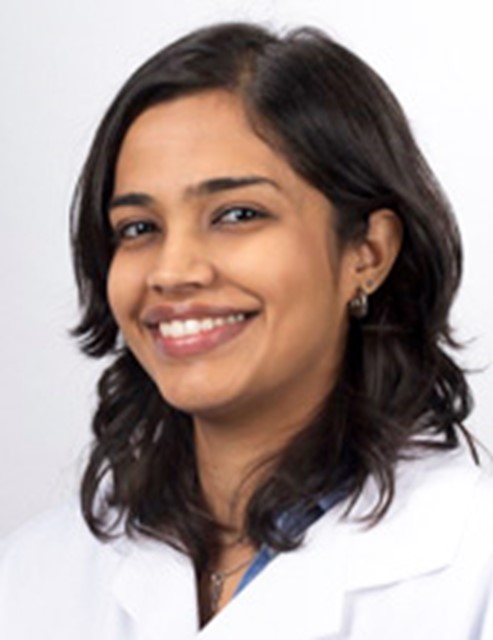
Tasnem Arsiwala obtained her Bachelor of Pharmacy from the University of Mumbai in 2010 and then moved to the University of Oxford, where she attended the Said Business School, and subsequently obtained a Master of Science in Pharmacology in 2011. She later graduated from the University of Zurich with a PhD in Molecular Integrative Medicine based on her work on “Sirt6 deletion in bone marrow-derived cells increases atherosclerosis” at the Center of Molecular Cardiology in 2016. She then accepted a postdoctoral fellowship in nephrology research at the Inselspital Bern, Switzerland. Currently, she works at Novartis, Basel, Switzerland.
Prof. Dr. Dan Atar, MD

Dan Atar studied medicine in Basel and subsequently received training in internal medicine and cardiology. This was followed by stays abroad, at Johns Hopkins University in Baltimore (1991–1994) and the University of Copenhagen, where he worked as a senior cardiologist. From 1997 to 1998, Dan Atar served as a senior physician at the University Hospital of Zurich, supported by the Cloëtta Foundation of Cardiology. His license to teach at the University (Habilitation) was transferred from the University of Basel to the University of Zurich. In addition to his clinical work, Dr. Atar conducted experiments to investigate ischemia and reperfusion of the heart. After serving as a senior physician at the University of Copenhagen's Frederiksberg Hospital in 2002, he was appointed head of the cardiology department at the University of Oslo in Norway. Here, he collaborated with a large team of cardiologists and clinical researchers, with a particular focus on the fields of cardiac markers, heart failure, and cardiovascular pharmacology.
Dr. Christian Besler, MD
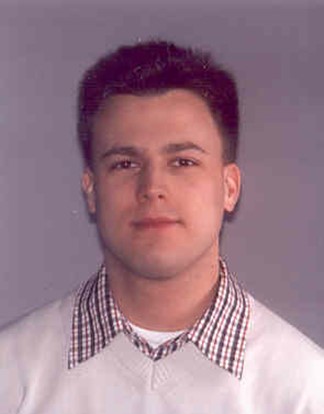
Christian Besler studied medicine in Hannover, Germany, and joined the Cardiovascular Research Division at the Institute of Physiology in 2010 to work on HDL dysfunction, a study that eventually became a seminal contribution published in the Journal of Clinical Investigation in 2011. He also worked part-time in the outpatient clinic of the Department of Cardiology at the University Hospital (headed by Prof. Thomas F. Lüscher) and subsequently trained in internal medicine at the Regional Hospital Uster, Switzerland (headed by PD Dr. Esther Bächli). He eventually moved back to Germany for further training.
Dr. Przemek Blyszczuk, PhD
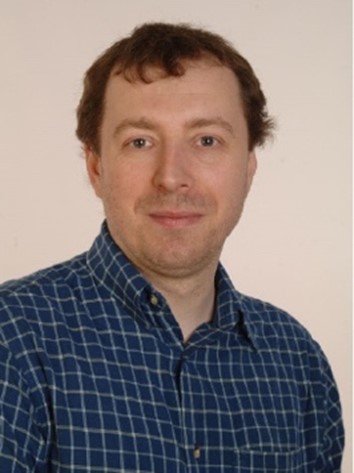
Przemyslaw Blyszczuk studied biology in Kraków, Poland, and then moved to the Center for Molecular Cardiology of the University of Zurich to work in the research group Cardioimmunology (headed by Prof. Urs Eriksson) on molecular mechanisms of myocarditis. He published seminal work on the inflammatory mechanisms of immune-mediated myocarditis. In 2019, he was appointed as a research associate to the research division of the Department of Rheumatology at the University Hospital Zurich, Switzerland.
Dr. Nicole Bonetti, MD, PhD
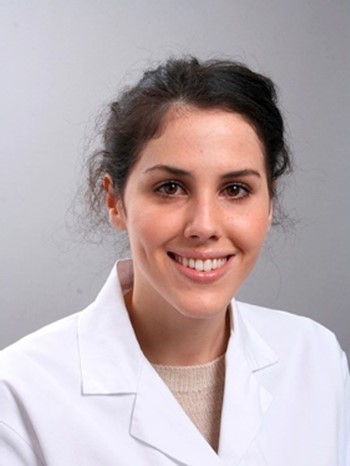
Nicole Bonetti studied medicine at the University of Zurich and subsequently trained in internal medicine at the Regional Hospital Baden in Switzerland. She was then accepted into the MD-PhD program at the University of Zurich and worked as a research fellow in the Center for Molecular Cardiology, under the guidance of Prof. Giovanni G. Camici. She published essential papers on the molecular mechanisms of stroke. She then finished her training in internal medicine at Baden Hospital and is now training as a cardiology fellow at the University Heart Center in Zurich, Switzerland.
Dr. Chantal Boulanger, PhD
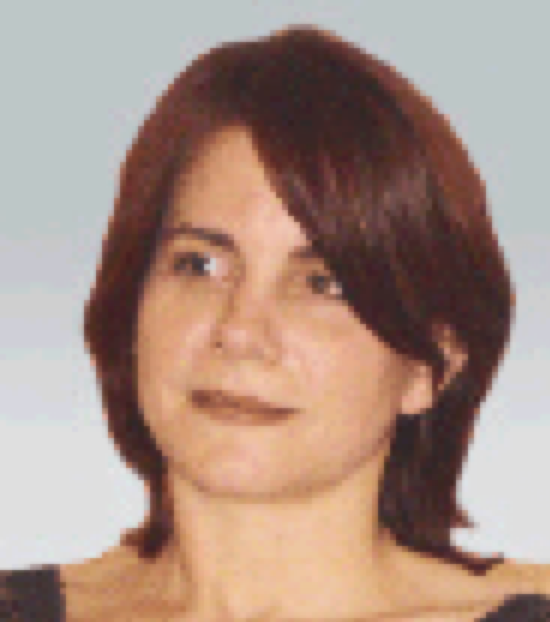
After studying pharmacy in Nancy, France, Chantal Boulanger continued her training at the Mayo Clinic in the US, focusing on cardiovascular biology. In 1988, she moved to Switzerland, where she worked as a researcher in the Department of Cardiology at the University Clinic Basel. During this time, Chantal Boulanger published several important publications showing that the secretion of a protein causing hypertension was inhibited by nitric oxide but stimulated by oxidized lipids. Her publications are still among the most cited papers in the prestigious medical journal Clinical Investigations. Later, she accepted a senior research position at Baylor College in Houston, USA. Since the early 1990s, she has worked at Hôpital Lariboisière (INSERM) at the University of Paris, first in the role of Research Director (Directrice de Recherches) and since 2019 as Director of the Paris-Cardiovascular Research Center.
PD Dr. Alexander Breitenstein, MD
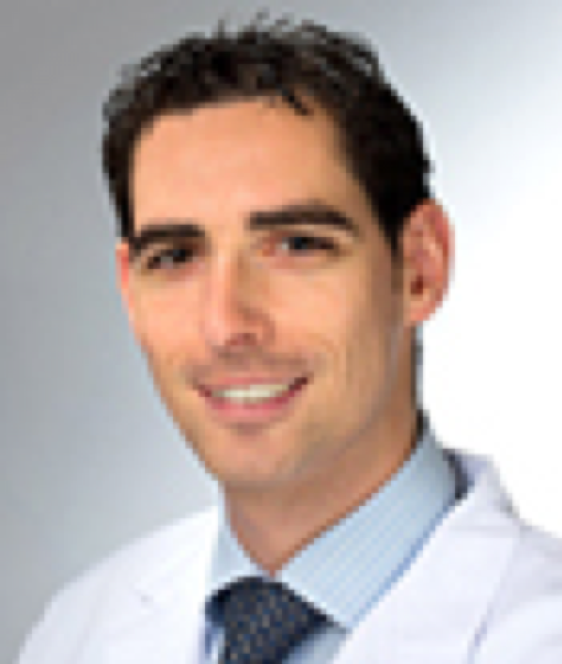
Alexander Breitenstein is a board-certified specialist in internal medicine and cardiology and has also received training in congenital heart disease, cardiac surgery, and cardiovascular research. From January 2011 to June 2012, he served as an assistant physician, and from July 2013 to December 2013, as a senior physician, in the cardiology outpatient clinic, the echocardiography laboratory, and the heart failure clinic at the Department of Cardiology of the University Hospital Zurich. In 2014, he moved to the Arrhythmia Unit of St. Bartholomew's Hospital in London for further training under the mentorship of Prof. Richard J. Schilling. After his return to the Department of Cardiology at the University Hospital Zurich, he became a senior physician in the arrhythmia unit and was appointed as a consultant in 2021. Based on his research and educational activities, he obtained the venia legendi (Habilitation) of the University of Zurich.
Dr. Dr. Sofie Brouwers, MD, PhD
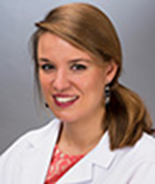
Sofie Brouwers studied medicine at the Vrije Universiteit Brussel, Belgium. After graduating in 2011, she began a PhD program at the Vrije Universiteit Brussel and Boston University as a fellow of the Research Foundation Flanders (FWO). Her doctoral research focused on arterial hypertension, specifically examining the role of the AT2 receptor in central regulation of blood pressure and renal hemodynamics. Upon completing her PhD, she continued her studies in internal medicine at the University Hospital in Brussels. In 2016, she joined the University Hospital in Zurich to pursue her cardiology training, where she was active as the Chief Medical Resident. During her time in Zurich, she was also involved in coordinating the Swiss Amyloidosis Registry. Since November 2019, she has worked at the OLV Aalst Hospital (Belgium) as a staff member in Cardiology. Furthermore, she is a member of the board of the Council on Hypertension of the European Society of Cardiology.
Prof. Dr. Giovanni G. Camici, PhD, FESC
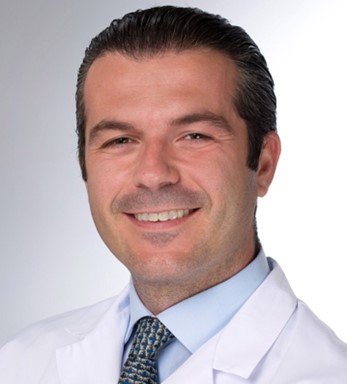
Giovanni G. Camici studied biology at Queen Mary University of London, UK. In 2007, he obtained a PhD in cardiovascular physiology at the University of Fribourg in Switzerland. After this, he moved to Zurich to work as a postdoctoral fellow and then as a group leader at the Cardiovascular Research Division at the University of Zurich. Under the leadership of Prof Lüscher, in 2014, he established and became director of the Center for Molecular Cardiology at the newly built University of Zurich campus in Schlieren. In 2017, he became an Assistant Professor at the Faculty of Medicine at the University of Zurich, where he continues to serve his duties. Over his career, he won several prizes, amongst which the “outstanding achievement award” of the European Society of Cardiology, and published several articles in top journals such as EHJ, JACC, and Circulation. He also filed several patents and participated in organizing numerous national and international congresses.
Dr. Candela Diaz-Cañestro, PhD
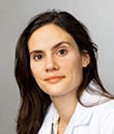
Candela Diaz-Cañestro studied exercise sciences at the University of Miguel Hernandez in Spain and later completed an MSc in Health and Human Performance at the same university. In 2015, she joined the Center for Molecular Cardiology to pursue her PhD, focusing on the molecular mechanisms of stroke in aging, as well as age-dependent vascular stiffness. In 2019, after completing her PhD, she moved to the Faculty of Kinesiology at the University of Calgary, Canada, for a postdoctoral fellowship and later to the University of Hong Kong as a postdoctoral fellow.
Prof. Dr. Francesco Cosentino, MD
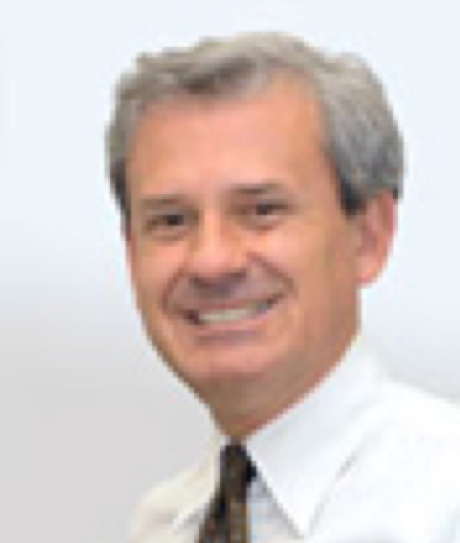
Francesco Cosentino studied medicine in Rome and then specialized in internal medicine. He served as a postdoctoral fellow in anesthesia and pharmacology research and was the head of the section on nitric oxide synthesis and tetrahydropyriopterin in endothelial function at the Mayo Clinic under the leadership of Prof. Zvank S. Katusic. Together with him, he published many notable studies. In 1993, he joined Prof. Thomas F. Lüscher’s cardiovascular research group at the Department of Cardiology, Inselspital (University Hospital) in Bern as a postdoctoral fellow. He then served as a university assistant at the Università la Sapienza in Rome and conducted cardiovascular research at the Institute of Physiology at the University of Zurich. In 2004, he completed a clinical sabbatical at the Department of Cardiology of the University Hospital of Zurich. In 2005, he was appointed Associate Professor of Cardiology at Università la Sapienza in Rome. Prof. Francesco Cosentino continued to work part-time as head of a cardiovascular research group at the Institute of Physiology, University of Zurich. Thanks to the collaboration between Zurich and Rome, many fellows could be trained in molecular cardiology in Zurich. Thanks to his scientific work in Zurich, he was appointed Professor of Cardiology by the Karolinska Institutet and Universitetssjukhuset in Stockholm, Sweden, in 2013.
Dr. Sarah Costantino, PhD
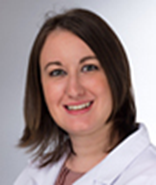
Sarah Costantino obtained her degree in chemistry and pharmacy in 2008 at the University of Naples "Federico II". In December 2012, she received her PhD in experimental medicine from the 2nd University of Naples. Then she worked as a fellow in cardiovascular research at the Institute of Physiology, University of Zurich, Switzerland, under the supervision of Prof. Francesco Cosentino and Prof. Thomas F. Lüscher. Her primary research interests include epigenetic mechanisms underlying cardiovascular disease in diabetes and obesity. In 2013, she received the ESC Young Investigator Award in Basic Science at the Congress of the European Society of Cardiology. She then moved to Sweden as a research assistant at the Cardiology Unit in the Department of Medicine at the Karolinska Institute in Stockholm, Sweden. In 2014, she moved to the Center for Molecular Cardiology to work in the research group Regenerative Medicine (headed by Prof. Francesco Paneni). In 2022, she joined the Department of Cardiology of the University Hospital Zurich.
Dr. Margot Crucet, PhD
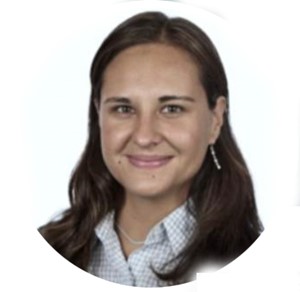
Margot Crucet is a native of Mexico, where she studied biology. Afterward, she moved to Switzerland for her PhD under the leadership of Prof. Roland Wenger and Prof. Christian M. Matter at the Institute of Physiology, Cardiovascular Research Division (headed by Prof. Thomas F. Lüscher), focusing on the modulation of scavenger receptors by hypoxia. After her successful promotion to a PhD, she worked as a postdoctoral fellow on rheumatoid arthritis in the Center for Molecular Cardiology (Chairman: Prof. Thomas F. Lüscher), which led to a well-received publication in cardiovascular research on “Molecular mechanisms of endothelial dysfunction and atherosclerosis in rheumatoid arthritis” in 2021. She now works in Germany with Fresenius GmbH as Scientific Affairs Manager.
Prof. Dr. Dennis Diederich, MD
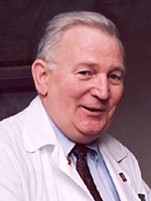
Denis Diederich, Professor of Nephrology and Medicine at the University of Kansas Medical Center, Kansas City, USA, spent in 1987–1988 a one-year sabbatical in the Laboratory of Vascular Research at the Center for Education and Research, University of Basle, together with Prof. Thomas F. Lüscher and published vastly on endothelial function in human blood vessels, as well as in mice treated with cyclosporin. He returned to his hometown in 1988 and continued to work as a Professor of Medicine at the Health Center in Kansas City, US.
Prof. Dr. Yasuaki Dohi, MD
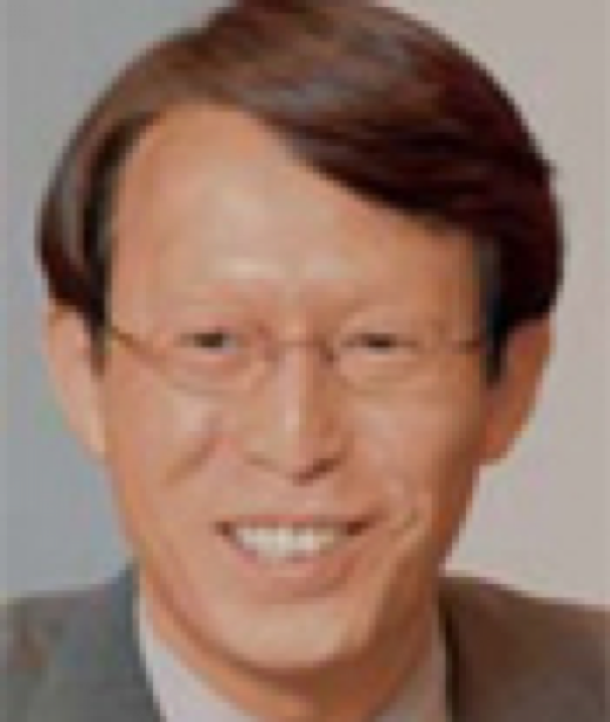
Yasuaki Dohi is Professor of Medicine at Nagoya University, Nagoya, Japan. He studied medicine in his hometown of Nagoya and subsequently specialized in internal medicine, with a focus on hypertension. In 1989, he joined Prof. Thomas F. Lüscher’s research group, which was in Basel at the time, and returned to his own university two years later. In Nagoya, he worked as a specialist in internal medicine at the University Hospital and was particularly interested in cardiovascular diseases, especially hypertension. In April 2015, Yasuaki Dohi was appointed Professor of Medicine in the Faculty of Rehabilitation Sciences at Nagoya Gakuin University.
Prof. Dr. Raghvendra K. Dubey, PhD
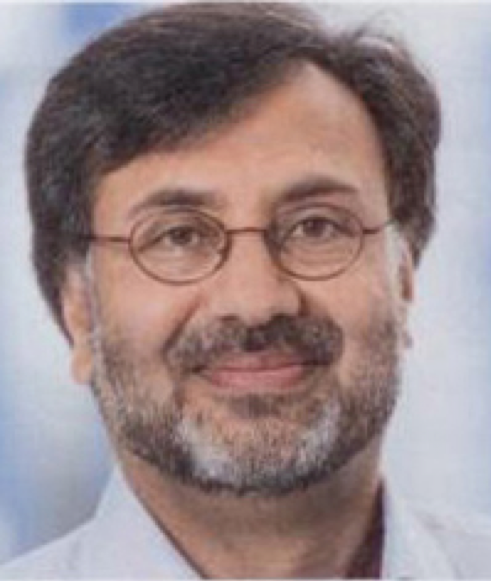
Raghvendra K. Dubey has studied at the Lucknow University, India, and completed his PhD in 1985. Thereafter, until 1994, he had several postdoc positions in the United States and stayed as a visiting scientist at the Laboratory for Vascular Research of the University Hospital Basel under the leadership of Prof. Thomas F. Lüscher, where he published seminal work on the inhibition of vascular smooth muscle migration by nitric oxide (Journal of Clinical Investigation 1995). From 1994 to 2010, he served as an assistant and Associate Professor at the University of Pittsburgh Medical Center in the United States. In 2000, he became research director at the Division of Reproductive Endocrinology at the University Hospital Zurich and lecturer at the University of Zurich. Since 2007, he has been an Associate Professor and since 2014 a Professor of Molecular Reproductive Endocrinology at the University of Zurich.
Prof. Dr. Livius d’Uscio, PharmD
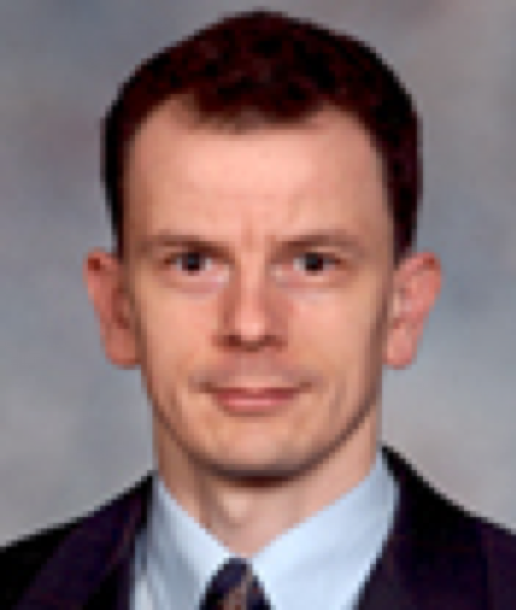
Livius d’Uscio studied pharmacy in Bern from 1988 to 1994 and then joined the Cardiovascular Research Division of the Department of Cardiology at Inselspital Bern, Switzerland. During his stay, he made seminal contributions to the understanding of the role of circulating peptides, including endothelin and angiotensin II, in the control of blood vessel tone and pathogenesis of hypertension and submitted his work as a PhD thesis in pharmacy at the University of Bern. For his work, he received the first prize for the best PhD thesis of that year from the University of Bern. In 1997, he relocated to the Cardiovascular Research Division at the University of Zurich's Institute of Physiology to continue his work. He published extensively in peer-reviewed journals on endothelial regulation of resistance arteries and their alterations in hypertension and hypercholesterolemia. In 1999, he joined Prof. Zvonimir Katusic’s vascular molecular biology laboratory in the Department of Anesthesiology at the Mayo Clinic in Rochester, USA, as a research fellow. He has since progressed to his current appointments as Associate Professor of Anesthesiology and professional associate in research. He has since continued his work on the role of GTP-cyclohydrolase I and tetrahydrobiopterin in vascular endothelium, and he has performed pioneering research regarding alterations of vascular tetrahydrobiopterin metabolism in cardiovascular disease.
Prof. Dr. Urs Eriksson, MD
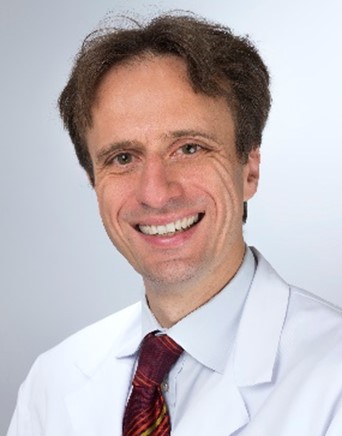
Urs Eriksson studied medicine at the University of Zurich and trained in internal medicine and Intensive Care Unit at the University Hospital in Basel. He then took a fellowship in myocarditis research at the University of Toronto Hospital and has since performed seminal work on the molecular mechanisms of inflammation in myocarditis. Based on his scientific work, he was awarded a professorship by the Swiss National Science Foundation. In 2012, he moved to the University Heart Center at the University Hospital in Zurich as a Senior Consultant. He established a research group focusing on myocarditis at the Center for Molecular Cardiology. In 2015, he was elected Chief of Internal Medicine at the Regional Hospital Wetzikon near Zurich, Switzerland.
Prof. Dr. Masato Eto, MD
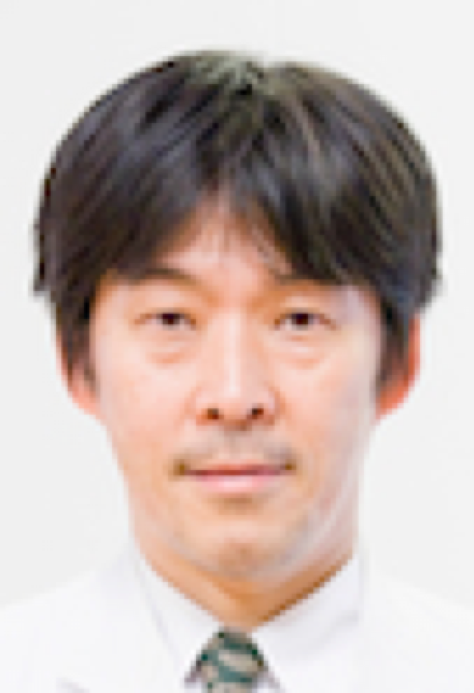
Masato Eto studied medicine in Japan and then moved to the Cardiovascular Research Division of the Institute of Physiology at the University of Zurich, where he worked under the leadership of Prof. Thomas F. Lüscher from 1999 to 2004. He identified several molecular signaling pathways leading to endothelial dysfunction. Since returning to Tokyo, he has continued his endothelial research to determine the molecular mechanisms underlying endothelial cellular aging and has published his findings in high-impact journals. Prof. Eto is the program director of clinical clerkship for medical students at the University of Tokyo. He is also a member of the national committee for the Japanese Examination for Medical Doctor Licenses and the Japanese Model Core Curriculum for Undergraduate Medical Education. Masato Eto is currently a Professor at the International Research Center for Medical Education, University of Tokyo Graduate School of Medicine, Japan.
Prof. Dr. Andreas Flammer, MD
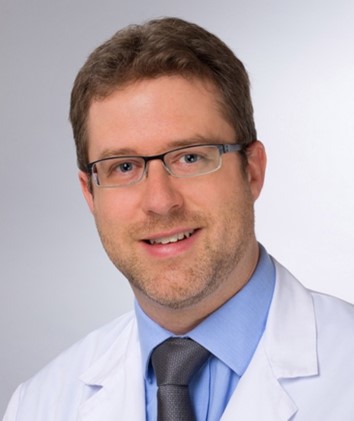
Andreas Flammer studied medicine in Basel and trained in internal medicine at the Regional Hospital in Burgdorf (Dr. Cottier). He then moved to the Cardiovascular Research Division (headed by Prof. Georg Noll) within the Department of Cardiology (headed by Prof. Thomas F. Lüscher) at the University Hospital Zurich, where he worked on the effects of nutrients, such as chocolate, on endothelial function in patients with cardiovascular disease and those undergoing heart transplantation. He then trained in cardiology at the institution and later moved abroad to the Mayo Clinic (Prof. Amir Lerman) for a research fellowship on endothelial function. After his return to Zurich, he became a consultant for heart failure and started research projects on the eye circulation in cardiac patients. He obtained the venia legendi (Habilitation) in cardiology at the University of Zurich in 2014 and was promoted to clinical professor (Titular-Professor) in 2020. He is currently head of the heart failure unit at the Department of Cardiology of the University Hospital Zurich.
Dr. Pietro Francia, MD
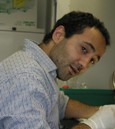
Pietro Francia studied medicine at the Sapienza University of Rome, where he graduated in 2001. In 2005, he specialized in cardiology at the same University. Between 2002 and 2003, he worked as a research and clinical fellow at the University of Zurich and the University Hospital of Zurich, under the supervision of Prof. Thomas F. Lüscher, Prof. Firat Duru, and Prof. Francesco Cosentino, who was then the research group leader at the institution. Currently, he works as a senior physician in the electrophysiology unit at Sant'Andrea Hospital, part of the Medical Faculty at Sapienza University of Rome, Italy.
Prof. Dr. Dr. Cathérine Gebhard, MD, PhD
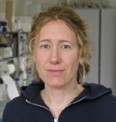
Cathérine Gebhard joined the Cardiovascular Research Division of the Institute of Cardiology after her medical studies in Germany and worked with Prof. Felix C. Tanner on the regulation of tissue factor by different physiological and biochemical stimuli. She later joined Prof. Paolo Camici at the PET Unit at the Hammersmith Hospital in London to work on nuclear cardiology, returned to Switzerland to work with Prof. Philipp A. Kaufmann in cardiac imaging at the University Hospital Zurich, and then moved to the Montreal Heart Institute in Canada for interventional training. Upon her return to Zurich, she received an SNF professorship in gender medicine in cardiology. She worked in both the Department of Nuclear Medicine at the University Hospital and with her research group at the Center for Molecular Cardiology on the Schlieren Campus of the University of Zurich. Since 2022, she has been a consultant in interventional cardiology at the Department of Cardiology at Inselspital Bern.
Dr. Ivan O. Haefliger, MD, FEBO

Ivan O. Haefliger is a Professor in Ophthalmology at the University of Basel. He is trained as both a basic scientist and a clinical ophthalmologist. After having completed his residency in ophthalmology in Geneva, he has been trained in basic research, glaucoma, and oculoplastic surgery in Basel (Zentrum für Lehre und Forschung), London (Moorfields Eye Hospital), Miami (Bascom Palmer Eye Institute), and Belohorizonte (UFMG/Bresil). He has published numerous original and review papers in ophthalmology literature and has served as a reviewer for many prestigious ophthalmology journals. He has been very much involved in different European associations. For many years, he has acted as chairman of the section of ocular pharmacology and physiology of the European Association for Vision and Eye Research (EVER). He has also been chairman of the EBO Education Committee of the European Board of Ophthalmology (EBO). He is presently vice-president of the European Union of Medical Specialists (UEMS) section of ophthalmology. He is also working in his private clinic in Basel, with a special focus and emphasis on lacrimal and eyelid-related issues.
Prof. Dr. Walter E. Häfeli, MD
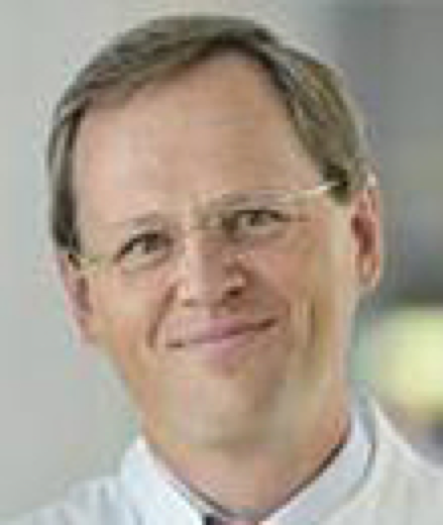
Walter Häfeli studied medicine in Basel, Switzerland, followed by further training in internal medicine and clinical pharmacology at the Department of Internal Medicine at the University Hospitals Basel. Between 1990 and 1992, he conducted research at Stanford University in the US, investigating the regulation of venous tone in the hand veins. In 1993, he returned to Switzerland, where he assumed the position of Assistant Medical Director under Prof. Thomas F. Lüscher at the Division of Clinical Pharmacology of the University Hospital Basel. Here he published seminal work on nitric oxide in the human forearm circulation (Circulation 195, Hypertension 1995 and 1997). In 1995, he was appointed Professor in Clinical Pharmacology at the University and Director of the University Clinic in Heidelberg, Germany.
Prof. Dr. Matthias Hermann, MD
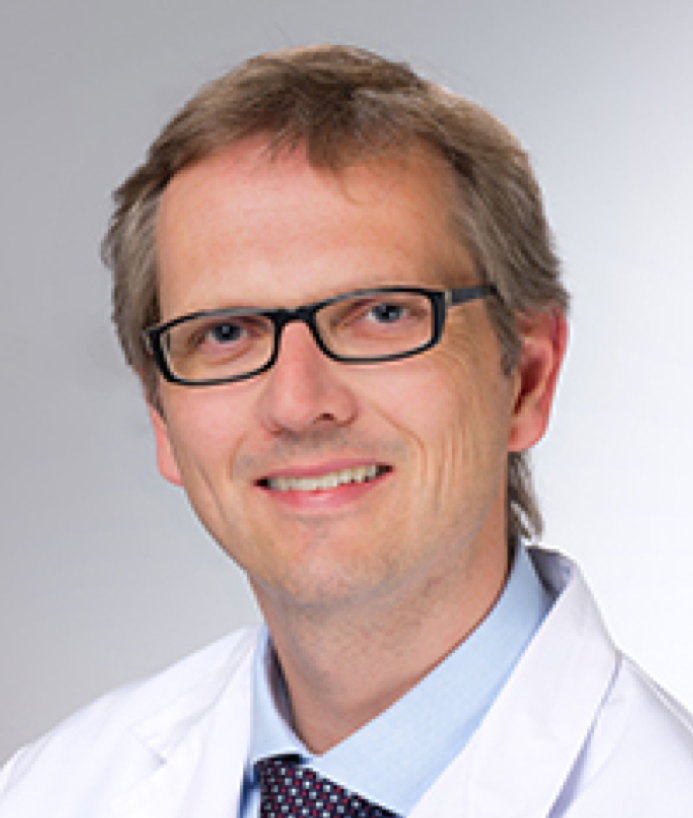
Matthias Hermann studied medicine in Göttingen and subsequently trained in Cardiovascular Research at the Institute of Physiology, and then in cardiology at the Department of Cardiology in Zurich. He has earned clinical and scientific merits, especially in the field of heart failure. In March 2009, he was appointed chief physician of the Department of Cardiology at the Rehabilitation Center Höhenklinik Wald near Zurich and continued as a part-time senior physician at the Department of Cardiology in Zurich. In 2011, he obtained the venia legendi (Habilitation) at the Medical Faculty of the University of Zurich for Cardiology. Since 2018, he has been a Consultant at the Department of Cardiology of the University Hospital Zurich.
Prof. Dr. Dr. Keiichi Hishikawa, MD, PhD
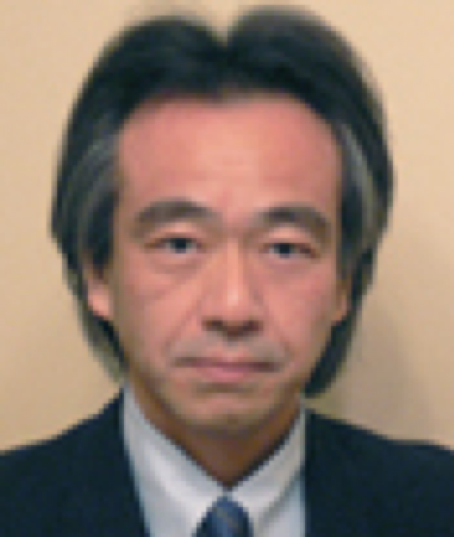
Keiichi Hishikawa studied at the University School of Medicine in Keio, Japan, and graduated in 1989. After that, he was a resident of the Division of Internal Medicine of the University Hospital in Keio. In 1993, he returned to the University School of Medicine in Keio as a specialized resident and then moved to Switzerland in 1995 as a Postdoctoral Research Fellow, initially at the Department of Cardiology of the Inselspital (University Hospital) Bern and thereafter at the Cardiovascular Research Division of the Institute of Physiology of the University of Zurich. He worked mainly on the effects of pulsatile stretching in endothelial and coronary artery smooth muscle cells. He published seminal papers in Circulation and Circulation Research. In 1997, he returned to Japan initially as a fellow and as of 1998 as an Associate Professor in Pharmacology at Teikyo University School of Medicine in Tokyo. Since 2002, Keiichi Hishikawa has been an Associate Professor at the Department of Internal Medicine as well as at the Department of Clinical Renal Regeneration at the University of Teikyo, Japan. His research interests encompass regenerative medicine and stem cell biology. Since 2002, Keiichi Hishikawa has been an Associate Professor at the Department of Internal Medicine as well as at the Department of Clinical Renal Regeneration at the University of Tokyo, Japan. His research interests encompass regenerative medicine, stem cell biology, as well as ES- and inducible progenitor cells.
Since 2002 Keiichi Hishikawa is an Associate Professor at the Departement of Internal Medicine as well as at the Department of Clinical Renal Regeneration at the University of Tokyo, Japan. His research interests encompass regenerative medicine, stem cell biology as well as ES- and inducible progenitor cells.
PD Dr. Dr. Erik W. Holy, MD, PhD
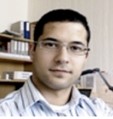
Erik W. Holy graduated in human medicine from the Medical University of Vienna. In September 2006, he joined the research group of the Clinic for Cardiology at the University Hospital Zurich, where he worked under the direction of Prof. Thomas F. Lüscher and Prof. Felix C. Tanner until November 2010. As part of his research activities, he successfully completed his MD-PhD program in 2012. Next, he continued his clinical training in internal medicine and cardiology at the Cantonal Hospital Baden and the University Hospital Zurich, where in March 2015, he was promoted to senior physician at the Clinic for Cardiology. Since 2022, he has been a senior physician and vice clinic director of the Clinic for Angiology at the University Hospital of Zurich.
Dr. Philipp Jakob, MD
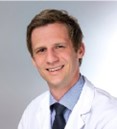
Philip Jakob studied medicine at the University of Zurich and became a research fellow at the research division of the Institute of Physiology in 2012 to study the effects of heart failure, both due to dilated and ischemic cardiomyopathy, on the biology and dysfunction of progenitor cells. He then trained as a fellow in cardiology at the University Heart Center in interventional cardiology. In 2014, he relocated with Dr. Ulf Landmesser from Zurich to the Benjamin Franklin Campus at Charité Berlin to further train in cardiology and continue his research. In 2018, he returned to the University Heart Center in Zurich as a junior consultant in interventional cardiology and is now a senior consultant in cardiology at the Cantonal Hospital Chur, Switzerland, with a part-time research commitment at the Center for Molecular Cardiology of the University and the Department of Cardiology at the University Hospital Zurich.
PD Dr. Roland Klingenberg, MD, FESC
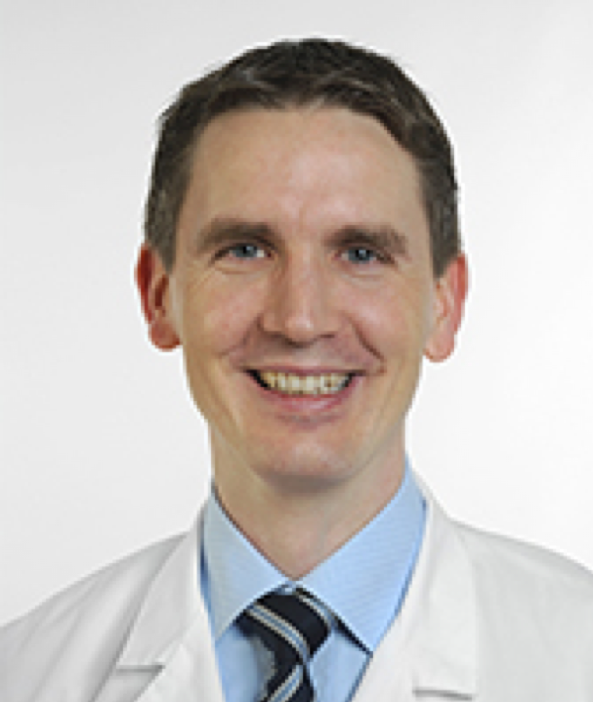
Roland Klingenberg studied medicine at the Universities of Tübingen and Freiburg (thesis) with clinical training at Baylor College of Medicine in Houston, Texas, and the University of South Florida in Tampa. Subsequently, he did his residency in internal medicine (board certified) with a focus on cardiovascular medicine at the University Hospital Heidelberg (headed by Prof. Hugo A. Katus). He continued with a postdoctoral fellowship in experimental vascular inflammation at the Karolinska Institute in Stockholm, under the leadership of Prof. Göran K. Hansson. Acceptance into the Special Program University Medicine – Inflammation and Acute Coronary Syndromes (SPUM-ACS), funded by the Swiss National Science Foundation, enabled him to pursue a variety of projects with a focus on inflammation and biomarkers in ACS patients in close collaboration with colleagues at four university centers in Switzerland. He obtained his board certification in cardiology (FMH), Switzerland, following a residency at University Hospital Zurich and was an attending physician in acute cardiology from 2013 to 2015 (headed by Prof. Thomas F. Lüscher) and received the venia legendi (Habilitation) in 2015. In early 2015, he moved to the Kerckhoff Klinik in Bad Nauheim (headed by Prof. Christian W. Hamm) for a special training in Interventional Cardiology and has been working there since 2018 as an attending physician.
Dr. Alexej Kouroedov – Schwarz, MD
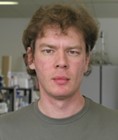
Alexej Kouroedov studied medicine at the University of Nowosibirsk in Russia and worked in the Cardiovascular Research Division of the Institute of Physiology from 2002 to 2007, where he worked on Inhibition of protein kinase C beta to prevent foam cell formation via reducing scavenger receptor A expression in human macrophages (Circulation 2008), among other projects. He then trained in clinical medicine at different institutions in Switzerland and now works in private practice in Zurich.
Dr. Nicolle Kränkel, PhD
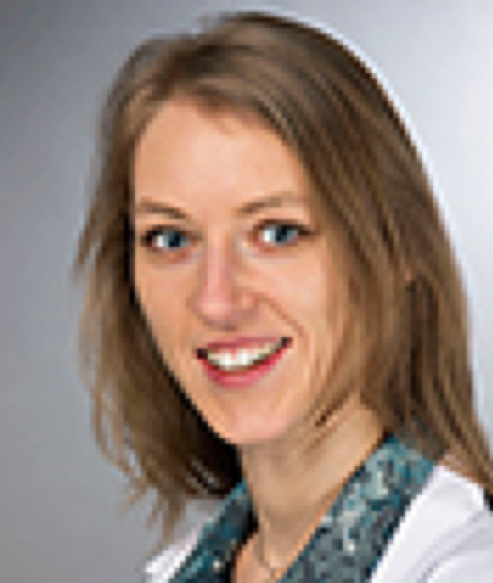
Nicolle Kränkel graduated in biotechnology and completed her doctoral studies in science at the Heart Center Leipzig. Supported by the Marie Curie Fellowship, she investigated the role of bradykinin receptors in angiogenesis during her postdoctoral studies at the University of Bristol (2006-2009). She then moved to the Center for Molecular Cardiology at the University of Zurich, where she continued her research on this topic in the research group of Prof. Ulf Landmesser with the support of the «Ambizione» Fellowship of the Swiss National Science Foundation. Since October 2014, Nicolle Kränkel has been a junior group leader at the Benjamin Franklin Campus, Charité in Berlin, in the Department of Cardiology, where she primarily focuses on the interactions between inflammation and regeneration in vascular disease. Currently, she is also secretary of the ESC Association on Preventive Cardiology (EAPC).
Dr. Nasmi Krasniqi, MD
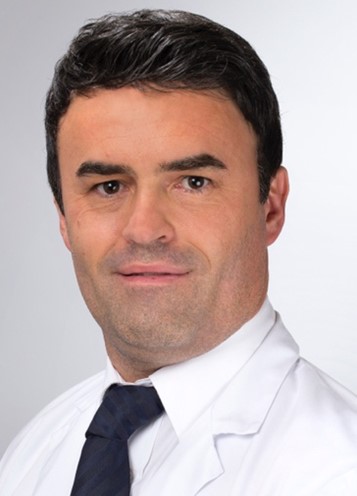
Nasmi Krasniqi studied medicine at the University of Zurich, where he worked under the supervision of Dr. Zhihong Yang, then the research group leader at the Cardiovascular Research Division of the Institute of Physiology at the University of Zurich-Irchel, conducting basic research. After his graduation, he trained in surgery and internal medicine at the Regional Hospitals in Baden, Bülach, and Winterthur. He then moved to the Department of Cardiology at the University Hospital Zurich, under the leadership of Prof. Thomas F. Lüscher, to train in cardiology, with a focus on electrophysiology and arrhythmias. He deepened this with an exchange fellowship under Prof. Josep Luis Mont at the Hospital Clinic, University of Barcelona, Spain. Thereafter, he moved to the Hospital in Wetzikon as a consultant and then a senior consultant in cardiology, where he was primarily involved in device implantation and ablation of rhythm disorders. He now works at the Herzklinik, Kreulingen.
Dr. Adelheid Kratzer, PhD
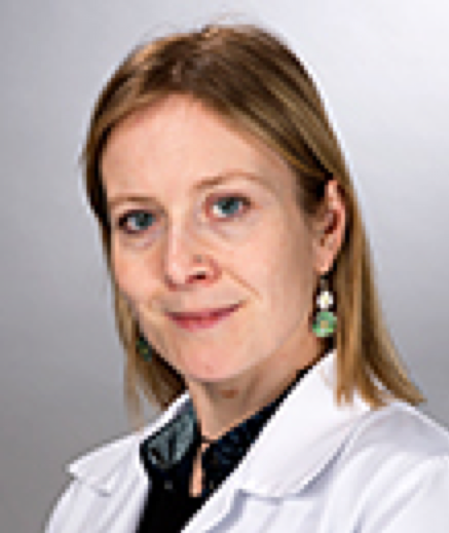
Adelheid Kratzer worked on nuclear receptors, particularly the liver X receptor during her PhD, and its impact on atherosclerosis, with a specific focus on macrophages. Thereafter, she changed her research interest towards the risk factors of cardiovascular disease, namely passive smoking. These studies led her to develop an interest in immunology, inflammation, and inflammatory signaling, ultimately redirecting her focus to cardiovascular research, as atherosclerosis is a chronic inflammatory disease. Having started her second Postdoctoral Position in Prof. Ulf Landmesser's research group at the Center for Molecular Cardiology in Zurich in July 2012, she began focusing on the differences in Caspase-1 recruiting inflammasomes, their activation, and regulation in monocyte subgroups from patients with stable and acute coronary artery disease. Here, she also began investigating the impact of microRNA, as well as high-density lipoprotein (HDL), on the regulation and activation of these subgroups. In this respect, she also attempted to establish a screening for miRNA and mRNA targets within the various monocyte subgroups using next-generation sequencing technology, with the support of the Functional Genomics Centre at the University of Zurich (FGCZ). In the future, she plans to investigate gender differences in this novel way of target search. Additionally, she is attempting to elucidate the impact of protease inhibitors on the pro- and anti-inflammatory effects of HDL and their potential implications in the treatment of CAD. Finally, she is also working on a humanized mouse model to study the impact of lipoproteins on the formation of monocyte subgroups. She has also successfully set up collaborations with companies, for whom we measure HDL-mediated NO release. Since October 2014, she has been working as a postdoctoral fellow in Prof. Landmesser's group at the Charité Campus Benjamin Franklin in Berlin.
Dr. Christoph Küng, PhD
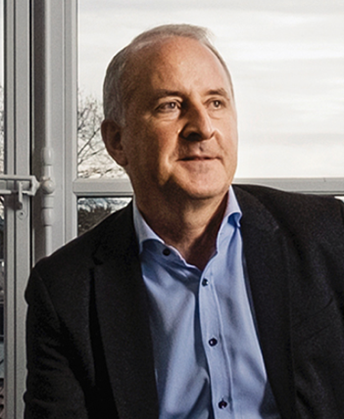
Christoph Küng studied pharmacy at the University of Basel, Switzerland. In 1992, he obtained his PhD on endothelial dysfunction in hypertension, performed at the Division of Clinical Pharmacology (headed by Prof. Thomas F. Lüscher) at the Center for Education and Research and the University Hospitals Basel. He published seminal papers on the effects of aging and hypertension on endothelial function (Hypertension, 1995; Journal of Cardiovascular Pharmacology, 1995). In 1993, he transitioned to the pharmaceutical industry, working with various companies before joining SwissMedic in Bern as Head of Division.
PD Dr. David Kurz, MD
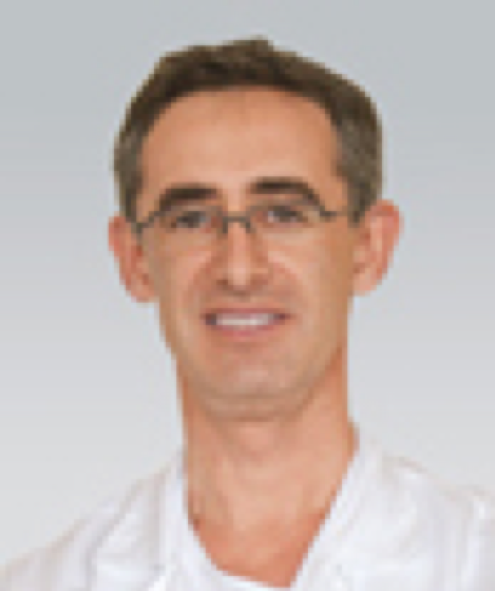
David Kurz studied medicine at the University of Zurich and then trained in internal medicine and cardiology. He then moved to the Wolfson Institute for Biomedical Research at University College London, where he worked under the leadership of Prof. Jorge D. Erusalimsky. He then returned to Zurich as a consultant in cardiology at Triemli Hospital (Prof. Osmund Bertel), with a part-time commitment to the Cardiovascular Research Division of the Institute of Physiology (headed by Prof. Thomas F. Lüscher), where he worked on endothelial senescence and telomeres. He published a seminal paper on telomere shortening in patients with aortic stenosis (Atherosclerosis, Thrombosis and Vascular Biology 2006). In 2008, he received the venia legendi (Habilitation) at the University of Zurich and held his inaugural lecture on "When cells change: relevant for age-associated cardiovascular disease?" Since then, he has worked exclusively clinically as a senior consultant in interventional cardiology at the Triemli Hospital (headed by Prof. Franz R. Eberli and, recently, by Prof. Raban Jäger).
Prof. Dr. Ulf Landmesser, MD
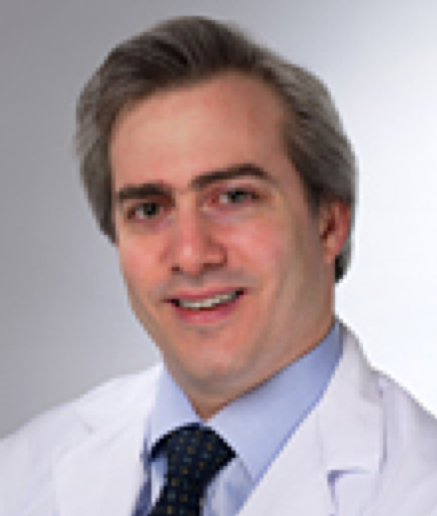
Ulf Landmesser studied medicine at the University of Leipzig and then trained in Internal medicine and cardiology at the Medizinische Hochschule Hannover (headed by Prof. Helmut Drexler). He then moved to the Emory University School of Medicine in Atlanta (Prof. David Harrison) to work on oxidative stress and cardiovascular function. In 2007, he moved to the University Heart Center, Department of Cardiology (Prof. Thomas F. Lüscher) at the University Hospital Zurich, where he served as Director of the Coronary Care and Chest Pain Unit and later as Deputy Chair of the Department of Cardiology. Furthermore, he served as a research group leader at the Center for Molecular Cardiology, focusing on HDL-cholesterol, a topic supported by the Transatlantic Network of the Foundation Leducq. In 2012, he received the Frederick Goetz Price of the University of Zurich for his research on HDL cholesterol. In 2014, Ulf Landmesser was appointed Professor of Cardiology and Director of the Medical Clinic for Cardiology, Pulmonology, and Angiology at the Charité Berlin and the University Hospital Benjamin Franklin.
Dr. Markus Lang, PhD
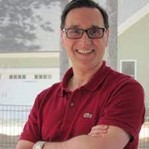
Markus Lang studied pharmacy at the University of Basel, Switzerland. He obtained his doctoral degree from the University of Basel in 1992 for his work on endothelial dysfunction performed at the Division of Clinical Pharmacology of the University Hospitals thereof (headed by Prof. Thomas F. Lüscher) at the Center for Education and Research of the University and the University Hospitals Basel. In 1993, he moved to the pharmaceutical industry. He is now Senior Director, Brand Safety Lead at United Therapeutics Corporation in the Raleigh-Durham-Chapel Hill Area, US.
Dr. Dr. Luca Liberale, MD, PhD
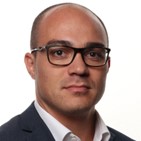
Luca Liberale studied medicine at the Univerisità di Genova in Italy and trained in internal medicine. He then pursued a postdoctoral research fellowship at the University of Zurich, Center for Molecular Cardiology, to work in basic cardiovascular research under the leadership of Prof. Giovanni G. Camici. He published well-cited work on the molecular mechanisms of ischemic stroke and on JCAD, a novel endothelial protein that interferes with endogenous fibrinolysis (European Heart Journal, 2022). In 2021, he returned as a researcher to the Division of Internal Medicine at the University Hospital in Genova under the leadership of Prof. Fabrizio Montecucco.
Prof. Dr. Christian M. Matter, MD
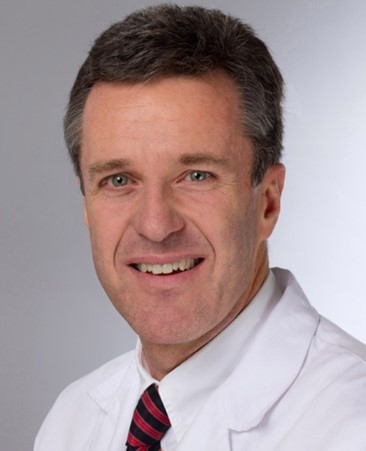
Christian Matter studied medicine in Zurich and trained in internal medicine and cardiology (supported by Prof. Hans-Peter Krayenbühl and Prof. Otto M. Hess). He then trained abroad in vascular biology at Harvard Medical School. He returned to the Department of Cardiology at the University Hospital Zurich (headed by Prof. Thomas F. Lüscher) in 1998 and worked as a research fellow in cardiovascular research at the Institute of Physiology, with a part-time commitment to outpatient cardiology at the hospital. He was then promoted to consultant with generous protected research time and clinical activity in the echocardiography laboratory (Prof. Felix C. Tanner). He was promoted to research group leader at the Center for Molecular Cardiology, where he focused on atherosclerosis research, and consistently received support from the Swiss National Science Foundation. In 2007, he received the venia legend (Habilitation) of the University of Zurich and was promoted clinical professor (Titular-Professor) in 2013. He left the Center for Molecular Cardiology in 2022 and is currently head of translational research at the Department of Cardiology of the University Hospital of Zurich.
Dr. Mario Merlini, PhD
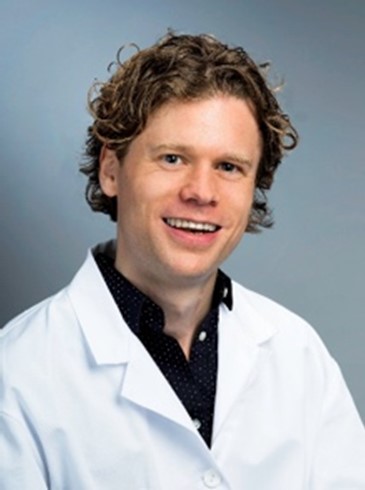
Mario Merlini studied biopharmaceutical sciences at Leiden University in the Netherlands. After that, in 2011, he obtained his PhD in the Neuroscience Division of the Psychiatry Research Unit from the University of Zurich, Switzerland. Next, he moved to the USA (Gladstone Institute of Neurological Disease, University of California, San Francisco) until 2014, sponsored by his own Swiss National Science Foundation grant. After this experience, he returned to Switzerland for 2 years, where he worked as a senior fellow at the Institute of Regenerative Medicine and at the Center for Molecular Cardiology. Currently, he works as a junior team leader in Neurovascular Dynamics for Neuropsychiatric Disorders at the University of Caen in France.
Prof. Dr. Peter Meyer, MD
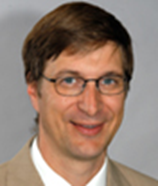
Peter Meyer completed his medical studies in Basel in 1987, followed by a year of training in internal medicine. Until 1993, he undertook specialty training in ophthalmology and ophthalmic surgery at the Eye Clinic of the University of Basel (Prof. Josef Flammer). Between 1991 and 1994, he worked in basic research at the Vascular Research Laboratory (Prof. Thomas F. Lüscher) of the Center for Education and Research of the University and University Hospitals Basel within a Swiss National Science Foundation project on ophthalmic vascular physiology. He developed a novel perfusion system for evaluating ocular microcirculation. The results built the foundation of his postdoctoral thesis in 2001 on „Untersuchungen an isolierten Blutgefässen und am perfundierten Auge – ein Beitrag zur Physiologie der okulären Perfusion“. In 1995, he undertook further specialty training under Prof. Daicker at the Eye Hospital in Basel, focusing on ocular pathology, and subsequently took over leadership of the unit after Prof. Daicker's retirement. In 1998, he undertook further specialization under the guidance of Prof. Naumann in Erlangen, focusing on ophthalmic pathology and oncology. Besides his role in the Department of Ophthalmic Pathology, he is also clinically active and undertakes conciliar oncologic consultations. In 2008, Peter Meyer became an Associate Professor at the University of Basel. His current research activities include neurodegenerative diseases of the optic nerve, particularly glaucoma, as well as basic research on meningothelial cells of the optic nerve sheath, and clinical pathological studies involving eye tumors.
Dr. Melroy Miranda, PhD
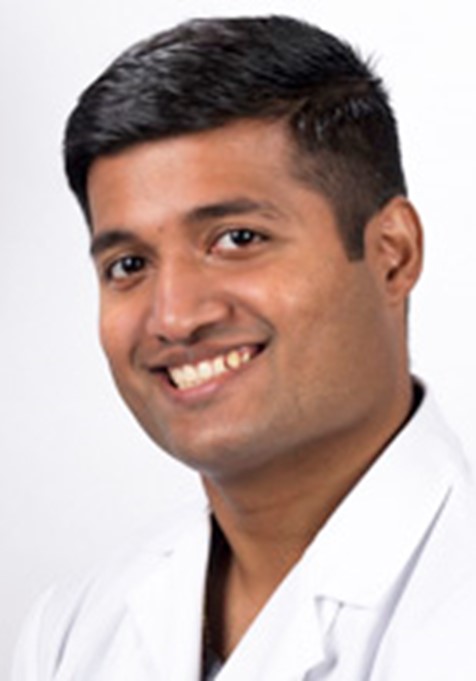
Melroy Miranda studied biology at the University of Mumbai, India and moved to the at the Center for Molecular Cardiology at the Schlieren Campus of the University of Zurich for his PhD working on the effects of Sirt1 on PCSK9, lipids and plaque formation leading to a highly cited paper on the effects of a SIRT1 activator on atherosclerosis in the mouse (supervised by Prof. Christian M. Matter). He was then offered a postdoctoral fellowship where he continued his work on SIRT1 under the leadership of Prof. Thomas F. Lüscher. In 2017, he founded a start-up company focused on developing novel therapeutics in his area of interest. Unfortunately, his start-up did not secure funding in time, and in 2021, he returned to his home country, India, to pursue further professional activities.
Prof. Dr. Pierre Moreau Dean, PhD

Pierre Moreau studied pharmacy at the University of Montreal (Canada). Subsequently, he engaged in basic research. From 1994 to 1996, he was involved in cardiovascular research at the Inselspital (University Hospital) in Bern, Switzerland, under the leadership of Prof. Thomas F. Lüscher. He conducted an impressive number of research projects investigating the remodeling of small arteries during experimental hypertension. He published his results in reputable scientific journals, including Circulation, Stroke, and Hypertension. In 1997, Pierre Moreau returned to Montreal, where he was appointed Professor of Pharmacy. Later, he was promoted to sub-dean at the Faculty of Pharmacy at the University of Montreal and eventually moved to become Dean of the Faculty of Pharmacy at the University of Kuwait.
Prof. Dr. Dr. Eduardo Nava, MD, PhD
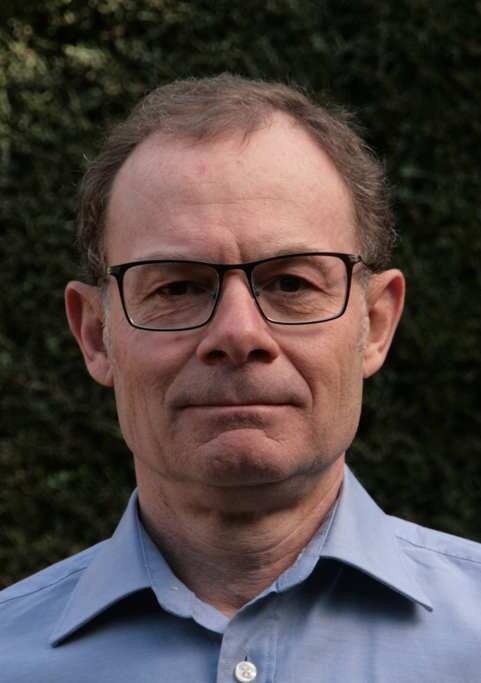
Eduardo Nava studied at the Autónoma University of Madrid, Spain, where he completed his degree in medicine as well as a PhD with a doctoral dissertation, in in vitro study of the internal carotid system. In 1990, he continued his scientific career as a postdoctoral fellow within the framework of the research on prostaglandins and nitric oxide, led by Prof. S. Moncada, then at the Wellcome Research Laboratories in London, UK. In 1993, he was recruited by Prof. Thomas F. Lüscher at the University Hospital Bern, where they investigated the role of nitric oxide in high blood pressure and developed several techniques for determining nitric oxide synthase in the hearts and resistance vessels of hypertensive animals. In 1995, he returned to Spain to the University of Murcia with Prof. Salazar to continue research in the field of nitric oxide biology, focusing on hypertension, ageing, and septic shock. In 1999, Dr Nava was appointed as a Lecturer in Physiology at the University of Castilla-La Mancha in Spain, and in 2019, he was appointed as a Professor at this university. His current research focuses on the role of perivascular adipose tissue in regulating microvascular function in metabolic syndrome and hypertension, as well as the paracrine effects of perivascular adipose tissue on the control of vasomotion.
Prof. Dr. Georg Noll, MD
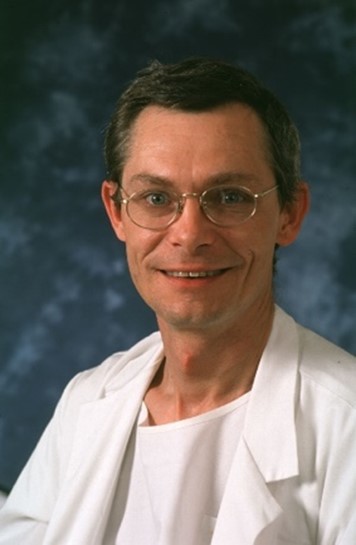
Georg Noll studied medicine at the University of Basel and received training in internal medicine and cardiology at the University Hospital. In 1989, he became a Junior Consultant in the Outpatient Department of Internal Medicine. He then joined the Vascular Physiology Laboratory of the Center for Education and Research under the guidance of Prof. Thomas F. Lüscher. In 1992, he received a stipend from the Swiss National Science Foundation as a senior researcher (SCORE Grant) and moved with Prof. Thomas F. Lüscher to Bern in 1993. In Bern, he established a cardiovascular physiology laboratory, focusing on endothelial and sympathetic nerve function, utilizing microneurography. He published seminal work on sympathetic nerve traffic in offspring of hypertensive patients and the effects of cardiovascular drugs on sympathetic nerve traffic. In 1997, he moved to the University of Zurich, Department of Cardiology, to become a senior consultant. He continued to run his clinical research group in the Department of Cardiology and published important work on cardiovascular function, heart failure, and transplantation. In 2012, he was nominated as an associate Professor of cardiology and Vice-Chairman of the University Heart Center. In 2014, he moved to a private clinic as a consultant in cardiology (Heart Clinic, Hirslanden Group, Zurich, Switzerland).
Dr. Stefanie Nusser-Stein, PhD
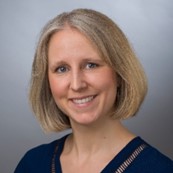
Stefanie Nusser-Stein obtained her diploma in biology in 2008 from the University of Tübingen, in Germany. From 2008 to 2012, he conducted her PhD under the supervision of Prof. Alex Hajnal at the Institute of Molecular Life Sciences at the University of Zurich, working on C. elegans development. Between maternity breaks, she worked as a research associate at ExcellGene in Monthey, Switzerland, before joining the Center for Molecular Cardiology as a postdoctoral fellow from 2017 to 2019, under the supervision of Sokrates Stein. During her postdoctoral fellowship, she studied the role of the hepatic nuclear receptors NCOR1 and PROX1 in atherosclerosis. Between 2019 and 2021, she worked as a Clinical Trial Coordinator in the Department of Hematology at the University Hospital Zurich and then joined AbbVie as a clinical research associate in 2021.
PD Dr. Barry Oemar, MD
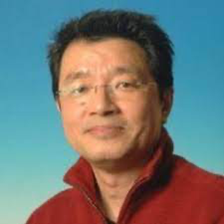
Barry Oemar, a native of Indonesia, studied medicine at the Medizinische Hochschule Hannover and trained in Pediatrics, but obtained excellent knowledge in molecular biology. He eventually received the venia legendi (Habilitation) in pediatrics at the Medizinische Hochschule Hannover. In 1992, he joined the Vascular Physiology Laboratory (headed by Prof. Thomas F. Lüscher) at the Center for Education and Research at the University of Basel to work on the molecular mechanisms of atherosclerosis. He published seminal papers on differentially expressed genes in human atherosclerosis, including human connective tissue growth factor, as well as on nitric oxide expression. In 1994, he moved to the pharmaceutical industry and is now a senior director at Pfizer.
Dr. Sara Oppi, PhD
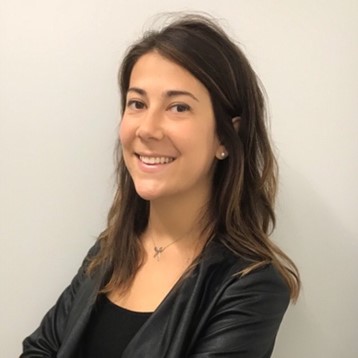
Sara Oppi earned her bachelor's and master’s degrees in biology from the Università Statale di Milano in 2013 and 2016, respectively. In 2016, she joined the Center for Molecular Cardiology at the University of Zurich to pursue her PhD under the supervision of Sokrates Stein. During her PhD, she showed that macrophage NCOR1 influences atherosclerosis progression in mice and likely plays a similar role in human plaques. She received several awards for her work, which was published in the European Heart Journal. After completing her PhD in 2020, Sara first joined Roche Diagnostics International as a Clinical Science Intern, then moved to MSD as a Clinical Data Manager in 2021, where she is currently advancing her career in clinical trial management.
Prof. Dr. Dr. Elena Osto, MD, PhD, FESC
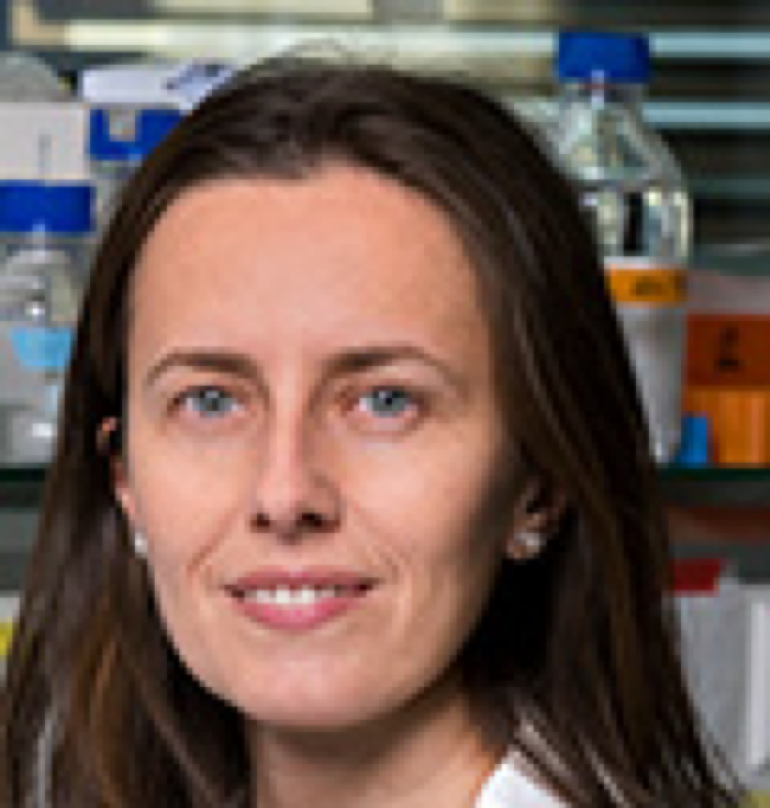
Elena Osto is a physician-scientist who became a board-certified cardiologist at the University of Padova, Italy, where she also obtained a PhD in cardiovascular science (2007–2010). Her research focuses on vascular dysfunction and atherosclerosis in dysmetabolic conditions such as obesity and type 2 diabetes mellitus with a strong translational aspect. She was awarded prestigious career grants (i.e. Forschungskredit, a Fellowship of the University of Zurich; then «Ambizione» followed by «PRIMA» of the Swiss National Science Foundation), which allowed her in 2015 to establish her independent research group on cardio-metabolic disease at the Institute of Clinical Chemistry, University and University Hospital of Zurich, She is also affiliated with the Laboratory of Nutritional Research of the ETH Zurich and the Institute of Veterinary Physiology of the University of Zurich (headed by Prof. Thomas Lutz) and the Department of Cardiology of the University Hospital Zurich (Prof. Frank Ruschitzka). She has earned awards such as the Cardiovascular Biology Prize of the Swiss Society of Cardiology in 2009 and 2015; the Swiss Lipid Research Award of the Working Group on Lipids and Atherosclerosis (Swiss Atherosclerosis Association) in 2016; the Research Award of the Union of Vascular Societies of Switzerland and the Scholar of the Italian Society of Cardiology in 2018. In May 2018, she received the venia legendi (Habilitation) in Cardiology from the University of Zurich. She is a Fellow of the European Society of Cardiology (FESC) and is currently also a member of the Nucleus of the Working Group on Atherosclerosis and Vascular Biology. As of Summer 2023, she was nominated Chairwoman of Physiology at the University of Graz, Austria.
Dr. Sravan Payeli, PhD
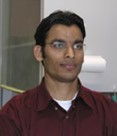
Sravan Payeli studied biology in his home country, India, before relocating to Switzerland to join the Cardiovascular Research Division (led by Prof. Thomas F. Lüscher) at the Institute of Physiology, University of Zurich. There, he worked under the guidance of Prof. Felix C. Tanner, the research group leader, focusing on tissue factor. He published highly regarded research, including a study on the prothrombotic gene expression profile in vascular smooth muscle cells of the human saphenous vein, but not the internal mammary artery (Arteriosclerosis, Thrombosis, and Vascular Biology, 2008). After completing his postdoctoral fellowship in Switzerland, he returned to India to work at a startup company.
Prof. Dr. Francesco Paneni, MD
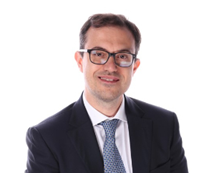
Francesco Paneni earned his MD degree in 2006 and then began his clinical training in Cardiology at the University of Rome “Sapienza”. In July 2011, he specialized in cardiology, and in 2014, he earned a PhD in experimental medicine from the same university. From 2011 to 2013, he worked as a research associate in the cardiovascular research team led by Prof. Luscher at the University of Zurich, Switzerland. From 2014 to 2017, Dr. Paneni served as a research associate at the Unit of Cardiology and the Center for Molecular Medicine at the Karolinska Institute. In January 2017, he was appointed Assistant Professor and research group leader at the University of Zurich, within the Centre for Molecular Cardiology. In 2022, he became the director of the Center for Translational and Experimental Cardiology at the University Hospital Zurich.
Prof. Dr. Ton Rabelink, MD
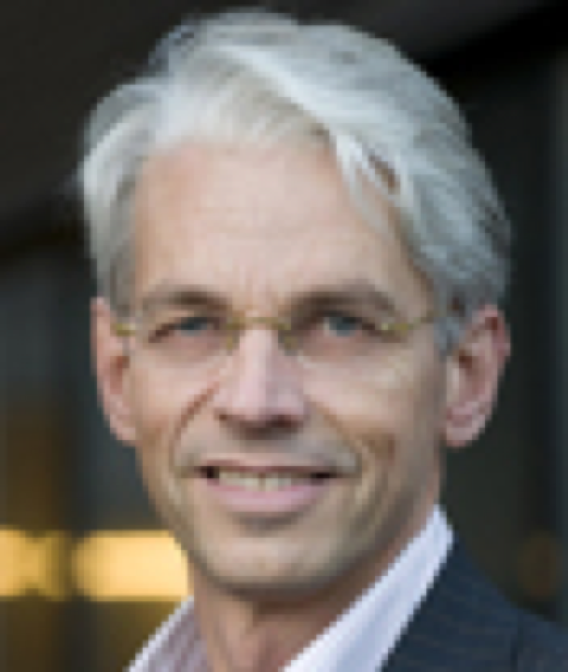
Ton Rabelink earned his medical degree in 1986 from the University of Utrecht (cum laude). After earning his PhD in renal physiology, he later obtained board certifications in internal medicine (1993) and nephrology and vascular medicine (1995). In 1993, he received a career development grant from the Royal Academy of Sciences. Through this grant, he had the opportunity to work in Prof. Lüscher's lab and gain experience in molecular biology. Upon returning to Utrecht, he became Chairman of the Department of Medicine in 2000. In 2004, he moved to Leiden University to serve as head of Nephrology and Transplantation. Since 2010, he has been Chairman of Medicine at Leiden University Medical Center. He has held roles in various professional organizations, including Chairman of the scientific board of the Kidney Foundation, member of the National Committee on Adult Stem Cell Research (ZonMW, TAS), and Chairman of the Council on Pathogenesis of the scientific board of the Dutch Heart Foundation. He has published over 300 papers in peer-reviewed journals. His current research interests focus on vascular biology, particularly the role of the endothelium in vascular processes and cell therapy, with a special emphasis on the clinical development of MSC and beta-cell therapies.
Prof. Dr. Dr. Romeo Ricci MD, PhD
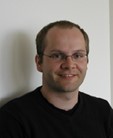
Romeo Ricci studied medicine at the University of Bern, Switzerland. After clinical training in surgical pathology at the University of Zurich, Switzerland, he joined the Research Institute of Molecular Pathology in Vienna as a postdoctoral fellow (Prof. Erwin F. Wagner). He subsequently worked at the Cardiovascular Research Division at the Institute of Physiology, University of Zurich (headed by Prof. Thomas F. Lüscher). Afterwards, he established his research laboratory at the Institute of Cell Biology at ETH Zurich, where he was appointed Assistant Professor in 2007. In 2010, he accepted a full professorship at the University Hospital of Strasbourg, accompanied by a research group at the IGBMC. His research has discovered novel molecular mechanisms that contribute to the understanding of inflammatory disorders, atherosclerosis, and diabetes. He has been awarded several distinguished research prizes, including being selected as a new EMBO Young Investigator in 2009 and receiving an ERC starting grant for his laboratory in 2012.
Prof. Dr. Vincent Richard, PhD
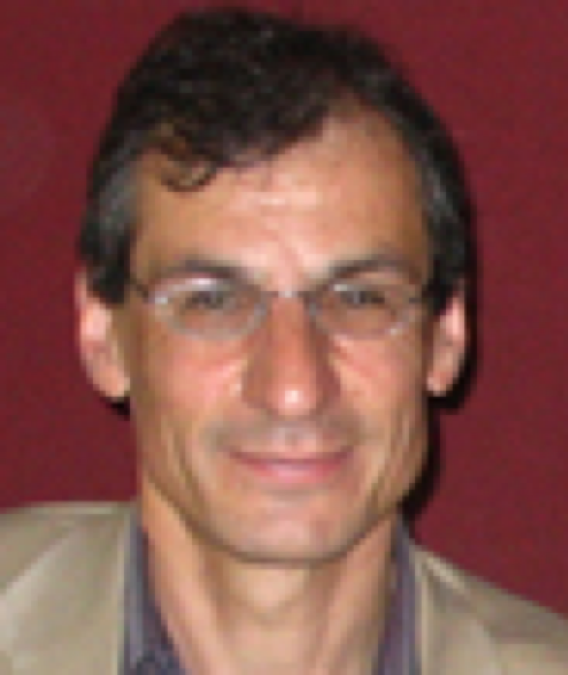
Vincent Richard studied pharmacy in Rouen (France), where he continued his formation under Prof. Christian Thuillez. In 1988, he moved to Switzerland, where he conducted research at the Department of Cardiology at the University Clinic Basel (Switzerland). From this research, he was able to publish a series of highly influential research papers on the effect of nitric oxide in coronary arteries. In 1995, Vincent Richard returned for a small sabbatical to Basel, where he conducted an experiment using ultrasound and the Doppler effect to investigate the effect of nitric oxide on vasodilation in the lower arm. With more than 800 citations, his publication in the medical journal Circulation is one of the most highly cited scientific papers in this field. Today, Vincent Richard is Professor of Pharmacology at the University of Rouen
Dr. Izabella Rosenberg, PhD
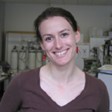
Izabella Rosenberg studied biology in her home country, Poland, before moving to Switzerland to join the Cardiovascular Research Division (headed by Prof. Thomas F. Lüscher) at the Institute of Physiology of the University of Zurich. There, she worked under the leadership of Prof. Felix C. Tanner, research group leader, on L-selectin and its role in atherosclerosis (PLoS One, 2011) as well as on Lox-1 in endothelial transgenic mice (European Heart Journal, 2014). After completing her fellowship, she transitioned into the industry.
Prof. Dr. Frank Ruschitzka, MD
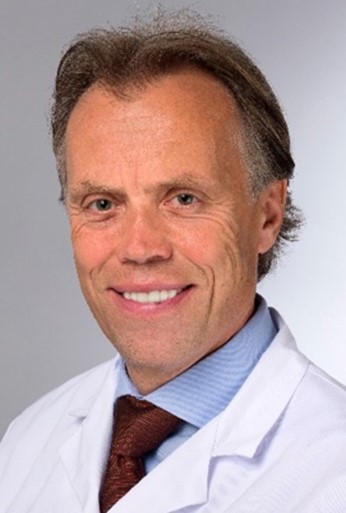
Frank Ruschitzka studied medicine at the University of Göttingen, Germany, and trained in internal medicine and nephrology at the University Medical Center. In 1994, he moved to the Cardiovascular Research Division (headed by Prof. Thomas F. Lüscher) of the Department of Cardiology (Prof. Bernhard Meier) at the University Hospital (Inselspital) in Bern, Switzerland, as a Research Fellow. In 1997, he moved into the same position in the Cardiovascular Research Division of the Institute of Physiology at the University of Zurich. From 1999–2003, he trained as a Fellow in cardiology at the Department of Cardiology of the University Hospital Zurich (headed by Prof. Thomas F. Lüscher). He became a Junior Consultant, with a particular focus on heart failure. In 2008, he became a Senior Consultant, and in 2014, he was nominated as the Head of the Heart Failure Unit at this institution. Based on his work in cardiovascular physiology and heart failure, he received the venia legendi (Habilitation) in cardiology at the University of Zurich in 2001 and was appointed Clinical Professor in 2007. In 2012, he was nominated as an Associate Professor of Cardiology with a particular focus on heart failure, and in 2018, he was promoted to Director of the Department of Cardiology at the University Heart Center in Zurich, Switzerland.
Associate Prof. Dr. Gian-Luigi Savarese, MD
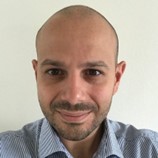
Gianluigi Savarese attended the University of Naples Federico II, where he earned his degree in surgery and medicine between 2004 and 2010. He then stayed at the same institution until 2016, completing his specialization in cardiovascular diseases. He then continued his postgraduate studies at the Center for Molecular Cardiology of the University of Zurich between 2015 and 2017, where he furthered his research into Heart Failure. Finally, Dr Savarese completed his PhD at the Karolinska Institutet in 2018. Gianluigi Savarese has published over 150 publications in peer-reviewed journals, focusing mainly on heart failure, epidemiology, and cardiovascular pharmacotherapy, and is Section Editor of European Cardiology Review. Gianluigi Savarese is currently an Associate Professor of Cardiology and Heart Failure Specialist at the Karolinska Institute in Stockholm, Sweden. He has served on the board for the European Society of Cardiology's Heart Failure Association since 2020 and has previously been a Nucleus member of a working group on Cardiovascular Pharmacotherapy for the ESC. He is a member of the Italian Society of Cardiology and the Swedish Society of Cardiology.
Dr. Marzia Schiavoni, MD
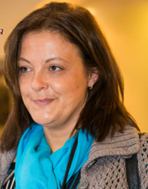
Marzia Schiavoni graduated in medicine at the Sapienza University of Rome in 2001 and specialized in cardiology in 2008. Between 2003 and 2005, she spent two years as a research fellow at the Cardiovascular Research Division of the University of Zurich (Institute of Physiology), under the supervision of Prof. Francesco Cosentino and Prof. Massimo Volpe. During her fellowship, she investigated the molecular mechanisms of diabetes-related vascular dysfunction and published several papers in top journals, including PNAS. Upon completing her fellowship, she returned to Rome and shortly after moved to San Camillo de’ Lellis hospital in Rieti, where she works as a clinical cardiologist.
Prof. Dr. Yi Shi, MD
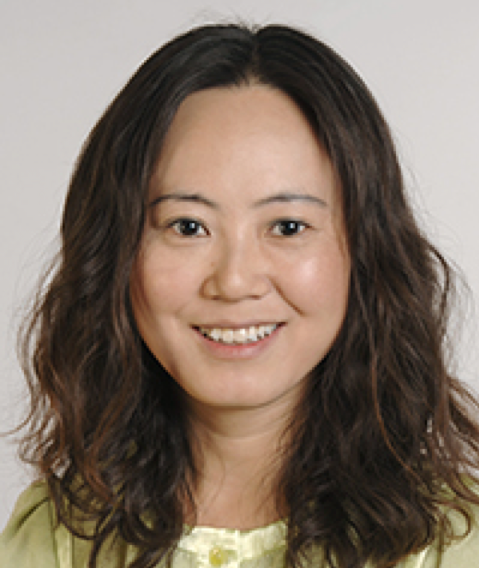
Yi Shi studied medicine at Shanghai Medical College, Fudan University (CHN), and did her PhD study at the Department of Pharmacology and Pharmacy of the University of Hong Kong. After that, she joined Prof. Thomas F. Lüscher at the Cardiovascular Research Division in Zurich as a postdoctoral fellow. In 2012, Yi Shi was appointed Associate Professor at Fudan University. Currently, she works at the Biomedical Research Laboratory of Zhongshan Hospital, Shanghai. Her research interests include the cardiovascular pharmacology of natural products, particularly those derived from Chinese medicine, with a focus on modulatory actions on vascular reactivity. Additionally, she examines the effects of endothelial function on allograft rejection and tolerance.
Dr. Branko Simic, PhD
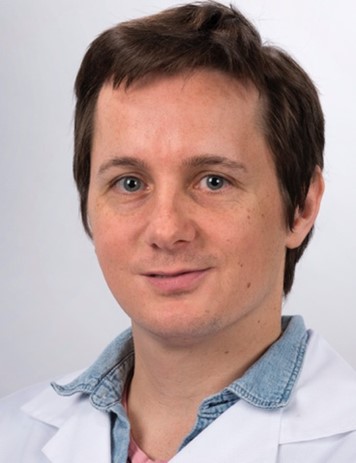
Brank Simic studied biochemistry in his native country, Serbia, and did a PhD at the University of Zurich in this field. In 2010, he joined the then Cardiovascular Research Division (headed by Prof. Thomas F. Lüscher) of the Institute of Physiology at the University of Zurich–Irchel as a postdoctoral fellow. He worked on the endothelial effects of CETP inhibitors, such as Torcetrapib and Anacetrapib, which he published in the European Heart Journal and Atherosclerosis, respectively. He then studied at the Center for Molecular Cardiology (Chairman: Prof. Thomas F. Lüscher, Director: Giovanni G. Camici) at the Schlieren Campus of the University of Zurich, focusing on a stable nitrocompound (MCP-1011) and its effects on angiogenesis in a model of peripheral arterial disease (Atherosclerosis, 2020). In 2017, he left the Center for Molecular Cardiology to accept a second postdoctoral fellowship at the Institute of Biochemistry at the University of Zurich–Irchel campus.
Prof. Dr. Dr. Timo Speer, MD, PhD
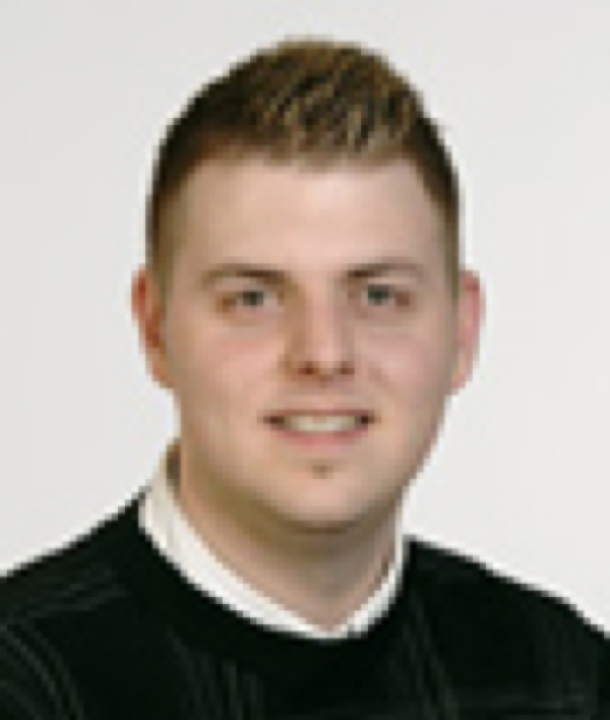
Timo Speer studied medicine at the University of Saarland in Germany and subsequently trained in internal medicine and nephrology. From 2010 to 2012, he was a postdoctoral research fellow at the Department of Cardiology of the University Hospital Zurich and the Institute of Physiology, University of Zurich (Prof. Thomas F. Lüscher and Prof. Ulf Landmesser). In 2013, he received the venia legendi (Habilitation) at the University of Saarland based on his thesis entitled "Chronic kidney disease (CKD) transforms high-density Lipoprotein (HDL) into a noxious particle linking endothelial dysfunction, hypertension and innate immunity". Since 2012, he has been the Head of the Working Group on Vascular Biology and Lipoprotein Metabolism at the University Hospital Saarland, Germany, and as Deputy Head of Nephrology at this institution. In 2022, he was appointed Professor of Nephrology at the Johann Wolfgang Goethe University in Frankfurt, Germany.
Dr. Remo D. Spescha, PhD
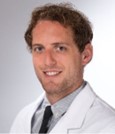
Remo Spescha studied biology at the University of Zurich. For his master's thesis, he worked in the Cardiovascular Research Division of the Institute for Physiology. After graduating in human biology, he investigated new molecular mechanisms involved in ischemic stroke from 2011 to 2014 for his doctoral thesis at the Center for Molecular Cardiology on the Schlieren Campus of the University of Zurich, under the guidance of Prof. Giovanni G. Camici. After his PhD, Remo Spescha joined the industry in Switzerland.
Prof. Dr. Barbara Stähli, MD
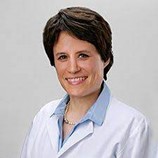
Barbara Stähli studied medicine at the University of Bern. She then trained in internal medicine at the Regional Hospital Langenthal (headed by Prof. Rolf Sträuli) and thereafter spent 2 years in the Cardiovascular Research Division of the Institute of Physiology in Zurich (supervised by Prof. Felix C. Tanner) and worked on the regulation of tissue factor. She then spent one year at the Cantonal Hospital Aarau training in vascular surgery but later changed her mind and decided to become a cardiologist. She received her basic training at the Department of Cardiology of the University Hospital Zurich (headed by Prof. Thomas F. Lüscher). She later moved to the Montreal Heart Center for further training in interventional cardiology. She then moved back to Berlin, Germany, to take on a junior consultant position at the Cardiology Department of Charité (headed by Prof. Ulf Landmesser). In 2018, she returned to the Department of Cardiology at the University Hospital Zurich (Prof. Dr. Frank Ruschitzka) as a consultant in interventional cardiology. In 2021, she was nominated as an Assistant Professor of Cardiology at the University of Zurich, thanks to a donation from the Zurich Heart House.
PD Dr. Simon Stämpfli, MD
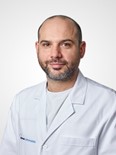
Simon Sämpfli studied medicine at the University of Zurich. He then spent 2 years in the Cardiovascular Research Division of the Institute of Physiology in Zurich (supervised by Prof. Felix C. Tanner). He worked on stress-induced arterial thrombosis in mice. He then trained in internal medicine and cardiology at the Department of Cardiology of the University Hospital Zurich (Prof. Thomas F. Lüscher) and was later nominated as junior consultant in echocardiography there. In 2018, he was appointed senior consultant of non-invasive cardiology at the Cantonal Hospital Lucerne. In 2022, he was further recruited as a part-time research group leader at the Center for Molecular Cardiology, University of Zurich
Prof. Dr. Jan Steffel, MD
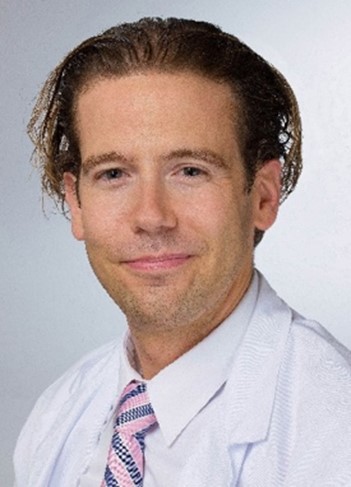
Jan Steffel studied medicine at the Universities of Bonn and Munich from 1996 to 2003 and received his Doctoral Degree in 2004. From 2003 to 2005, he was a postdoctoral fellow in cardiovascular research at the Institute of Physiology of the University of Zurich (Prof. Felix C. Tanner). Then he trained in cardiology at the University Heart Center (headed by Prof. Thomas F. Lüscher), followed by a fellowship in internal medicine in Baden (headed by Prof. Jürg Hans Beer) and Zurich (headed by Prof. Edouard Battegay). In 2012, he became a junior and later a senior consultant in cardiology, with a specific interest in arrhythmias and anticoagulation. From 2018 to 2021, he served as Vice-Chairman and Clinical Professor of Cardiology at the University Hospital Zurich. He is now a consulting cardiologist at the Hirslanden Group in Zurich, Switzerland.
Dr. Simona Stivala, PhD
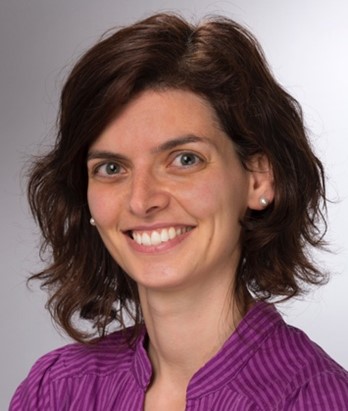
Simona Stivala studied Biological Sciences and Experimental and Applied Biology and did her PhD at the Università di Pavia in Italy. She then moved to the Research Council, Hills Road in Cambridge, UK, and joined the Center for Molecular Cardiology of the University of Zurich as a postdoctoral fellow in the research group of Prof. Jürg Beer from 2010 to 2017. Her significant scientific achievements are in the field of platelet function and the cardiovascular protective effects of nutritional fatty acids. Specifically, she focused on determining how omega-3 of plant origin, such as alpha-linolenic acid, reduce platelet activation and thrombosis. As a result, she published some seminal papers on blood and hematologic topics. Today, she is a Senior postdoctoral researcher in the Myeloid Malignancies research group at the Department of Biomedicine, University Hospital Basel, Switzerland.
PD Dr. II Sokrates Stein, PhD
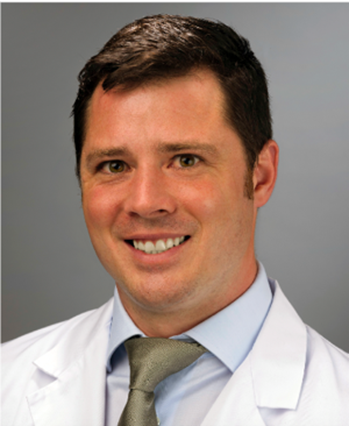
Sokrates Stein studied biology at the University of Tübingen in Germany from 2002 to 2007. From 2008 to 2011, he completed his PhD in Integrative Molecular Medicine at the Cardiovascular Research Division of the Institute of Physiology (Prof. Christian M. Matter) at the University of Zurich, Switzerland. From 2011 to 2015, he was a postdoctoral fellow in the Laboratory of Metabolic Signaling at the École Polytechnique Fédérale de Lausanne, Switzerland, under the leadership of Kristina Schoonjans and Johan Auwerx. With an «Ambizione» grant, he returned to the University of Zurich as a research group leader in molecular atherosclerosis at the Center for Molecular Cardiology (headed by Prof. Giovanni G. Camici and Prof. Thomas F. Lüscher), with a focus on transcription factors and atherosclerosis. In 2020, he transitioned to the pharmaceutical industry, working with Novartis Switzerland on Inclisiran.
Dr. Grzegorz Sumara, PhD
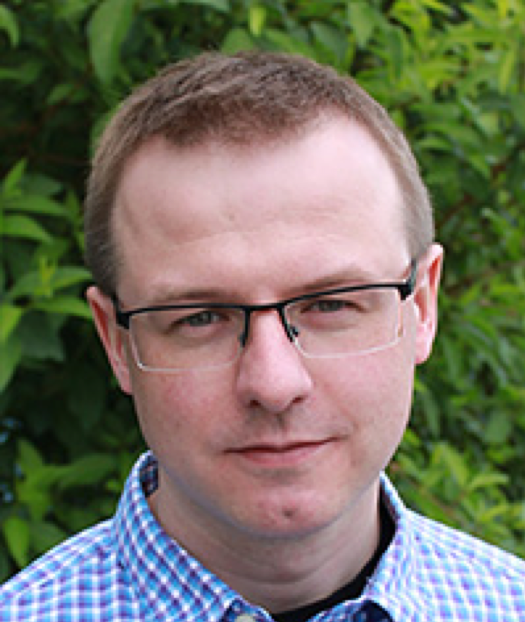
Grzegorz completed a biology degree at the Jagiellonian University in Kraków, Poland. He started his scientific training in 2002 under the guidance of Prof. Erwin F. Wagner at the Institute of Molecular Pathology (IMP) in Vienna, Austria. In 2003, he moved to the University Hospital of Zurich, Switzerland, to work in the laboratory of Prof. Thomas F. Lüscher. At the end of 2004, he began his PhD studies in Prof. Romeo Ricci's group at ETH Zurich. After completing his PhD, he moved to the laboratory of Prof. Gerard Karsenty at Columbia University, New York, USA. Currently, he leads his own research group at the Rudolf Virchow Zentrum (RVZ) at the University of Würzburg in Germany, supported by the Emmy Noether Program from the German Research Foundation and the ERC Starting Grant. His research focuses on identifying signaling pathways that promote metabolic diseases, including obesity, diabetes, and atherosclerosis. He has authored numerous high-impact publications in prestigious journals, including Science, Cell, Cell Metabolism, Cell Stem Cell, and the Journal of Experimental Medicine.
Prof. Dr. Dr. Hiroyuki Takase, MD, PhD
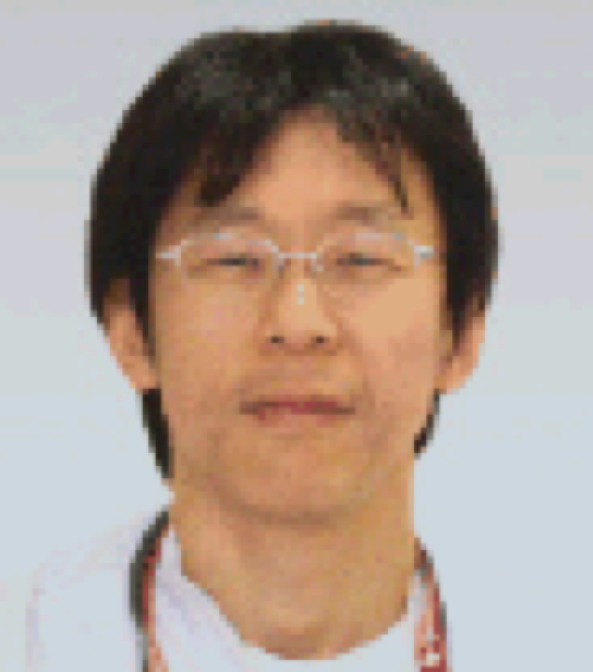
Hiroyuki Takase studied medicine at Nagoya City University in Japan. From 1993 to 1995, he conducted research at Prof. Lüscher’s cardiovascular research group at the Inselspital (University Hospital) Bern, where he investigated endothelial regulation of resistance arteries in hypertension. Since 1995, Hiroyuki Takase has served as the Head of Cardiology at Enshu Spital in Hamamatsu, Japan. His research focuses on hypertension, ischemia, including catheterization, coronary tomography, nuclear cardiology, and cardiac MRI, as well as heart failure, echocardiography, chronic kidney insufficiency, and arrhythmia. Recently, he was promoted to Director of the Department of Internal Medicine at Enshu Hospital in Hamamatsu, Japan.
Prof. Dr. Felix C. Tanner, MD
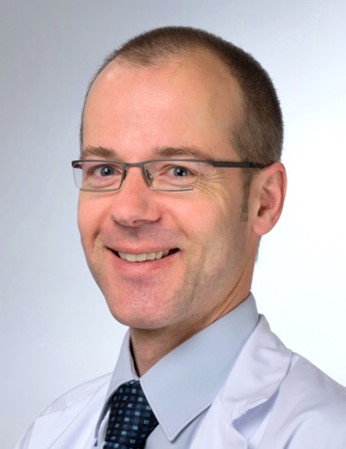
Felix C. Tanner studied medicine at the University of Basel. After three years of studying, he took a year off to work on a dissertation in basic cardiovascular science under the leadership of Prof. Thomas F. Lüscher and Prof. Fritz R. Bühler at the Center for Education and Research of the University of Basel. He then took a postdoctoral fellowship at the University of Ann Arbor under the leadership of Prof. Elisabeth Nabel. Afterwards, he trained in internal medicine at a local hospital near Zurich and returned to the laboratory at the research division of the Department of Cardiology at Inselspital Bern, where he worked again with Prof. Thomas F. Lüscher and his research team. He then worked in the research division of Cardiovascular Surgery under the leadership of Prof. Thierry Carrel before moving to the Cardiovascular Research Division at the Institute of Physiology, University of Zurich–Irchel. Simultaneously, he trained in echocardiography and was promoted to Professor of Cardiology with a special focus on echocardiography at the University of Zurich, eventually becoming Vice-Chairman of Cardiology at the University Heart Center of the University Hospital Zurich. From 2020 to 2022, he was president of the Swiss Society of Cardiology.
Dr. Dr. Marcel R. Tschudi, MD, PhD
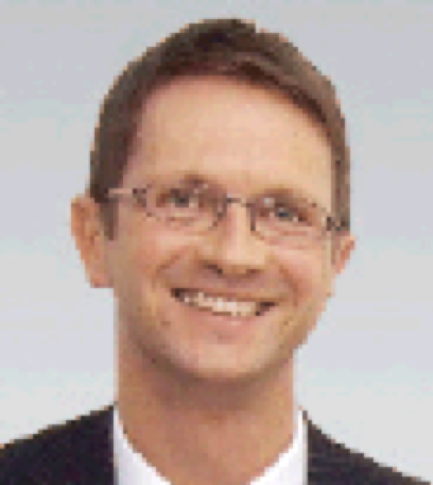
Marcel Tschudi studied medical biology at the University of Basel in Switzerland. Subsequently, he began a PhD in Prof. Lüscher’s cardiovascular research group at the Center for Education and Research of the University and University Hospitals Basel, focusing on the endothelial regulation of coronary arteries. Afterward, he moved with his supervisor to the Inselspital (University Hospital Bern) as a postdoctoral fellow in the Cardiovascular Research Division, focusing on the physiology of resistance arteries. In 1998, Marcel Tschudi accepted a research assistant position at the Cardiovascular Research Division, affiliated with the Institute of Physiology (Prof. Thomas F. Lüscher) at the University of Zurich. A year later, he accepted a position at the Swiss National Science Foundation, followed by a role at Merck Sharp & Dohme-Chibret AG. He then worked as a project leader at the Medical Tribune in Basel and is currently employed at Hoffman-La Roche in Basel, Switzerland.
Dr. Tobias von Lukowitz, MD
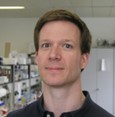
Tobias von Lukowitz studied medical sciences at the University of Regensburg, the Technical University of Munich, in Zurich, and at the University of Birmingham in the United Kingdom, from 1995 to 2002. He earned his doctorate at the Technical University of Munich on the "Construction of an adenoviral vector for radiation-inducible expression of the herpes simplex virus thymidine kinase". He then pursued specialized training in internal medicine and cardiology in Regensburg, Zurich, Baden, Santiago de Compostela, and Lübeck. Meanwhile, he spent two years conducting research in cardiovascular science at the Institute of Physiology at the University of Zurich, focusing on inflammation and atherosclerosis. Subsequently, he received further training in various clinics specializing in internal medicine and cardiology across Germany. Since 2011, he has been working at the Department of Medicine II at the University of Lübeck, Germany, before moving to his current role as a senior physician in interventional cardiology and electrophysiology at the Starnberg Clinic in Germany.
PD Dr. Bernd van der Loo, MD
Bernd van der Loo studied medicine at universities in Germany, Belgium, and France, earning his MD in 1988. He then worked at University College London (headed by Prof. John Martin) and later moved to Inselspital (University Hospital) Bern to conduct cardiovascular research (Prof. Thomas F. Lüscher). In 1997, he transferred with his supervisor to the Cardiovascular Research Division of the Institute of Physiology (headed by Prof. Thomas F. Lüscher) and published groundbreaking work on vascular aging (J Exp Med. 2000;192:1731; J Amer Coll Cardiol. 2000;36:1691; Circulation. 2002;105:1635). He subsequently trained in cardiology and angiology, received his venia legendi (Habilitation) in cardiology in 2004, and was appointed a junior consultant in echocardiography. In 2014, he moved to Germany.
Dr. Daria Vdovenko, PhD
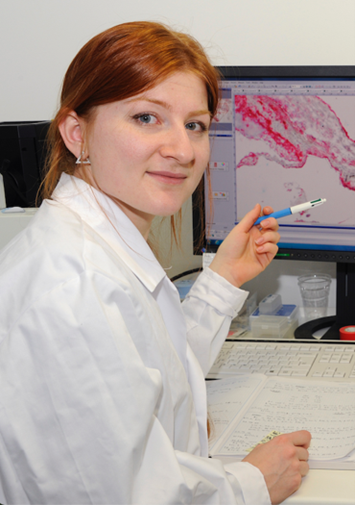
Daria Vdovenko studied at Lomonosov Moscow State University's Department of Molecular Immunology in Moscow, Russia, where she earned her master’s degree in 2013. Previously, she worked as a trainee in various laboratories in Ukraine, Moscow, and Stockholm. Since 2014, she has been part of the Center for Molecular Cardiology at the University of Zurich as a PhD student in the laboratory of Cardioimmunology (supervised by Prof. Urs Eriksson). After earning her PhD, she worked as a postdoctoral fellow at the same institution in a joint appointment with the Research Division of Cardiocentro Ticino in Lugano (supervised by Prof. Giuseppe Vassalli). In 2021, she moved to Canada as a postdoctoral fellow in immunology at McGill University in Montreal.
Dr. Ana Vukolic, PhD
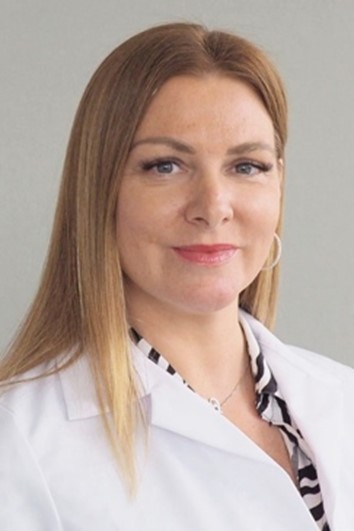
Ana Vukolic graduated as a Veterinary Doctor from the University of Belgrade, Serbia, in 2004. Afterwards, she moved to Switzerland, where she completed her PhD in 2010 at the Department of Medicine and Physiology at the University of Fribourg. Following her PhD, she worked as a postdoctoral fellow at INSERM in Nice, France, and later at ETH in Zurich. In 2020, she joined the Center for Molecular Cardiology, where she worked for approximately two years before moving to Roche AG as a team leader in in vivo operations within Discovery Pharmacology.
PD Dr. Edward Wight, MD
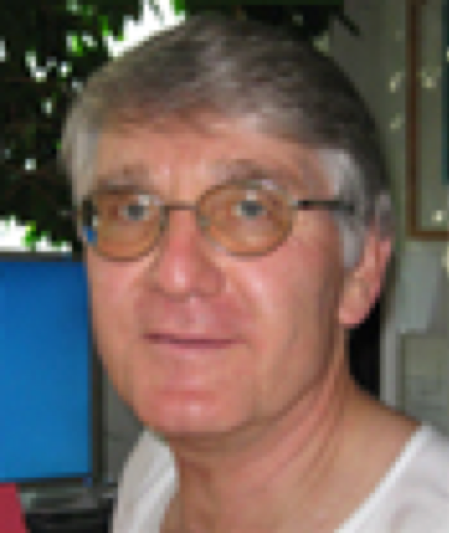
Edward Wight van Dyke studied medicine in Zurich. From 1979 to 1980, he completed a postdoctoral program in Experimental Medicine and Biology at the Medical Faculty of the University of Zurich (Prof. Rolf Zinkernagel). From 1980 onward, he worked as a postdoctoral fellow under the supervision of Prof. J. Lindenmann and Prof. H. Binz at the Institute of Immunology and Virology at the University of Zurich, focusing on experimental immunology. From 1981 to 1982, he shifted to clinical medicine and worked with Dr. Philipp Frey at the Institute for Anesthesia and Intensive Care Medicine at Triemli Hospital in Zurich. In 2000, he moved to the Department of Gynecology and Gynecological Oncology at the University Hospital Zurich (Prof. G. Duc, Prof. U. Haller, and Prof. E. Hochuli). Between 1994 and 1995, Dr. Wight van Dyke joined Prof. Thomas F. Lüscher at the Cardiovascular Research Unit of the Inselspital (University Hospital) in Bern on a fellowship in experimental cardiology. He was the first to characterize the endothelial and vascular function of the uterine artery during pregnancy and menopause. As of 2000, Dr. Wight van Dyke has been the director of gynecology and gynecological oncology at the University Hospitals Basel. In 2003, Dr. Wight van Dyke received the venia legendi (Habilitation) in gynecology at the University of Basel. He is now retired.
Dr. Dr. Stefan Winnick, MD, PhD
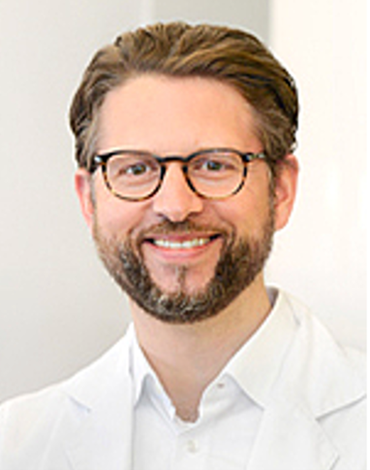
Stefan Winnick studied medicine in Germany and then worked at the Institute of Physiology, Cardiovascular Research Division (headed by Prof. Thomas F. Lüscher and supervised by Prof. Christian M. Matter). He earned his PhD on sirtuins in 2013. Afterwards, he trained in internal medicine and cardiology at the University Hospital Zurich (directed by Prof. Thomas F. Lüscher) and completed a fellowship in cardiac implantable electronic devices (CIED) at the Heart Center Leipzig (led by Prof. Gerhard Hindricks). He also received further training in the heart failure unit at the University Hospital Zurich. In 2018, he received the venia legendi (Habilitation) for his work on “The role of sirtuins in atherosclerosis – molecular mechanisms & clinical implications”. Since February 2022, he has been the chief of cardiology, arrhythmias, and angiology at the Regional Hospital Wetzikon (headed by Prof. Urs Eriksson), near Zurich, Switzerland.
Prof. Dr. Zhihong Yang, MD
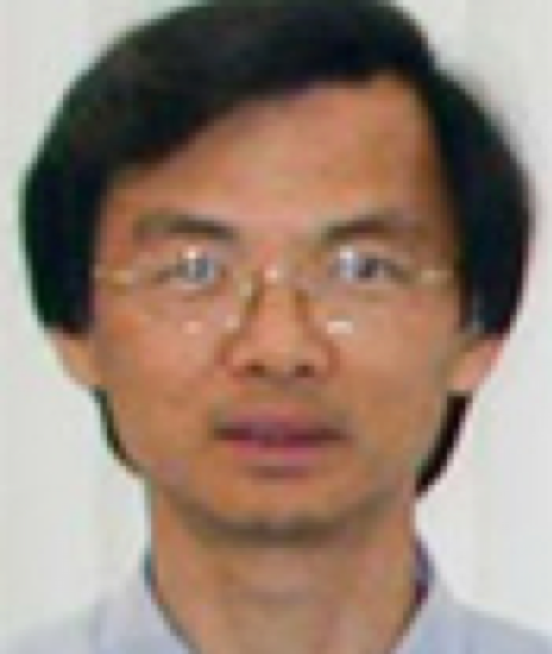
Zhihong Yang studied medicine in Wuhan, China. In 1987, the Swiss Confederation awarded him a federal scholarship for advanced studies. At the University of Basel, he served as a research assistant in the vascular physiology group led by Prof. Thomas F. Lüscher, and later as a senior assistant in cardiovascular research at the Institute of Physiology, University of Zurich. As a staff member of cardiovascular research teams in Basel, Bern, and Zurich, Zhihong Yang developed his scientific skills and published in top medical and scientific journals on bypass graft disease and endothelial function. In 1999, he earned the venia legendi (Habilitation) in Physiology at the University of Zurich. In 2001, he was appointed Professor of Physiology at the University of Fribourg. His research group focuses on inflammaging, organism aging, and age-related chronic diseases. He is currently the Chairman of the Department of Medicine.